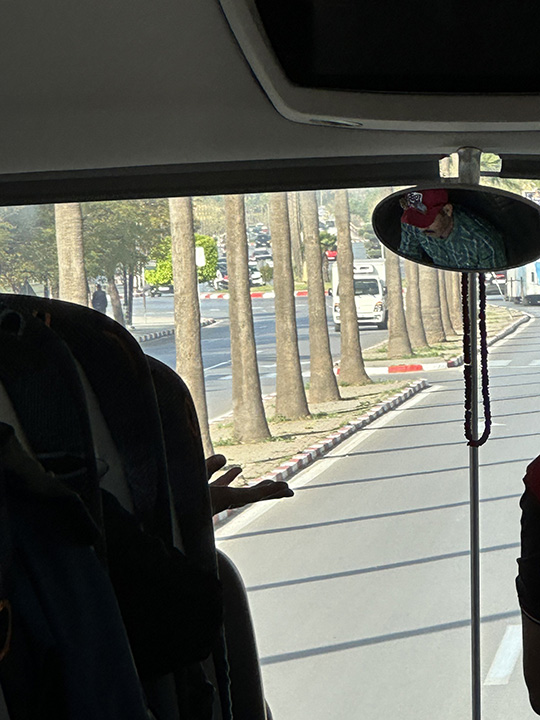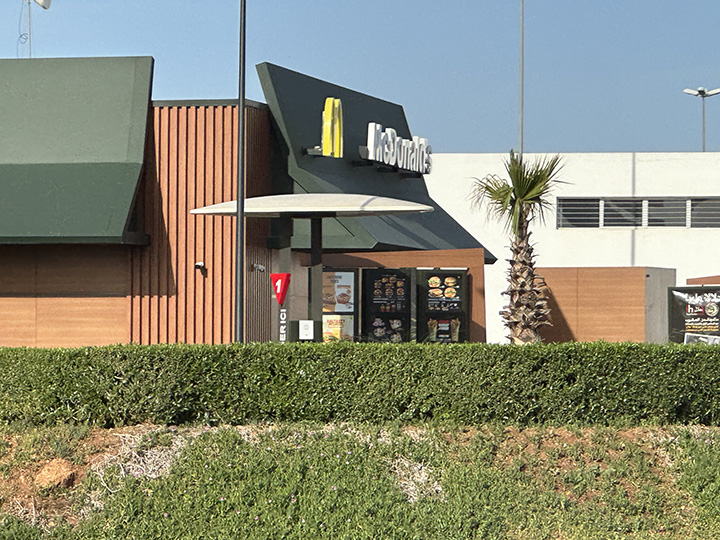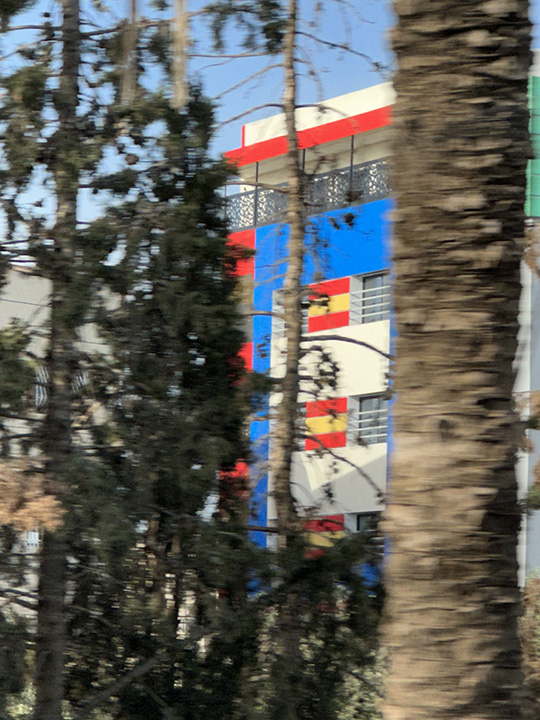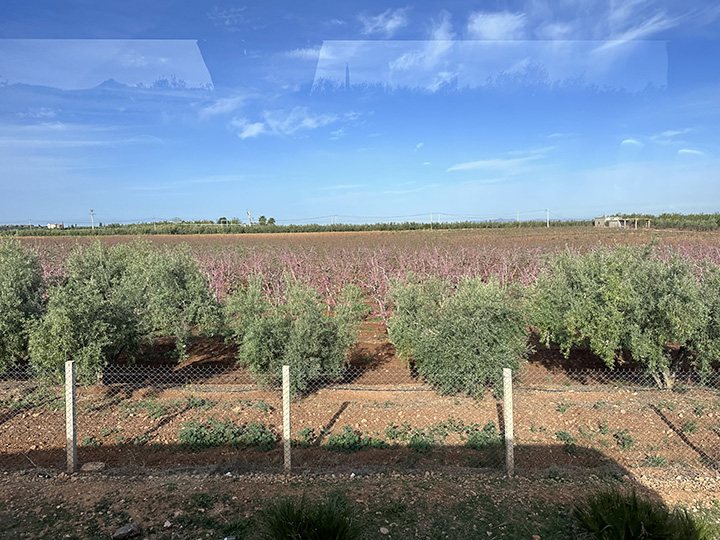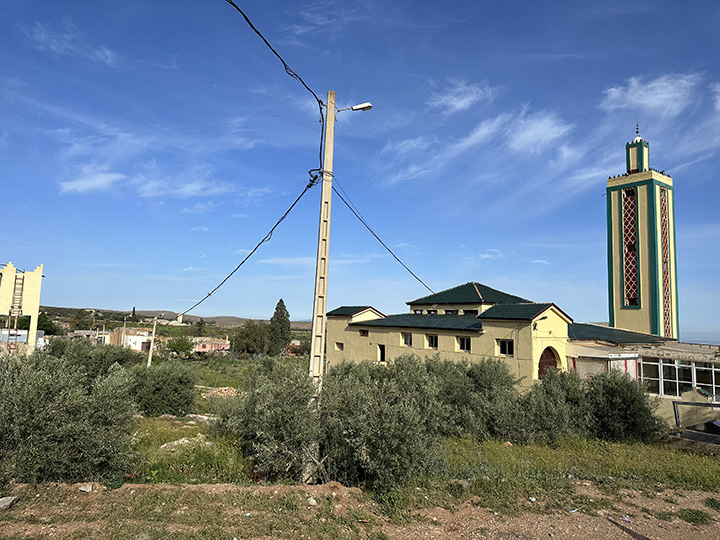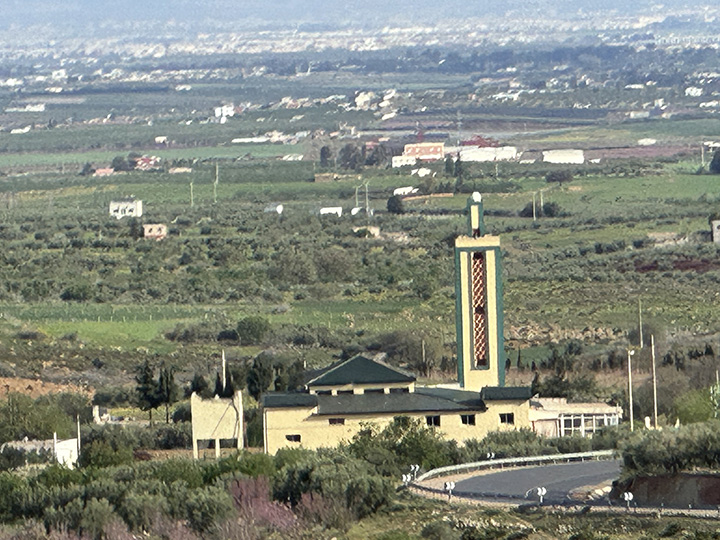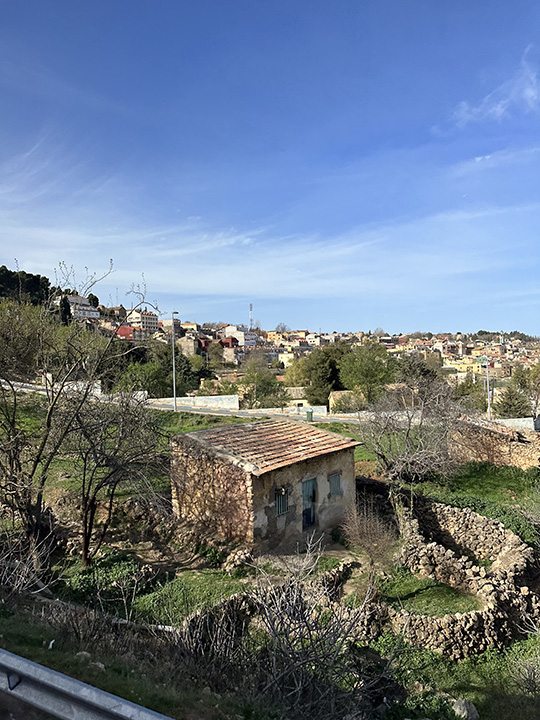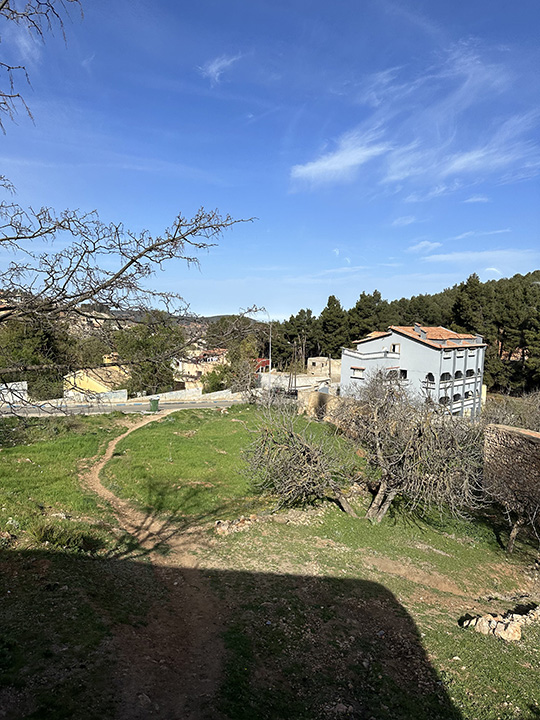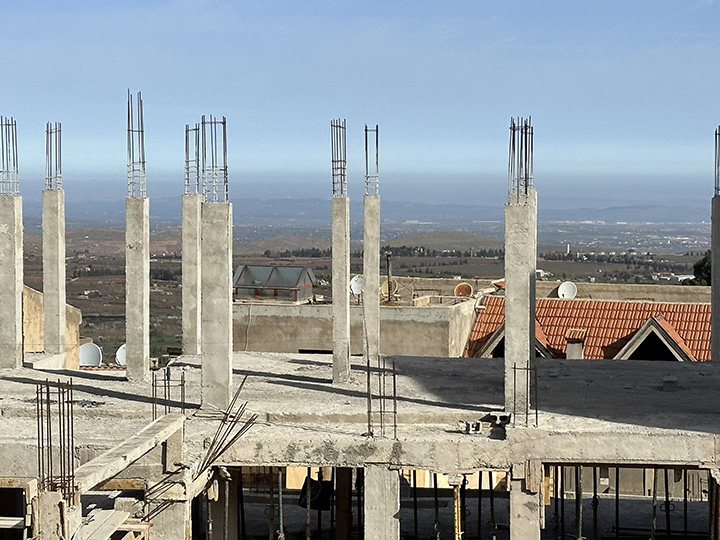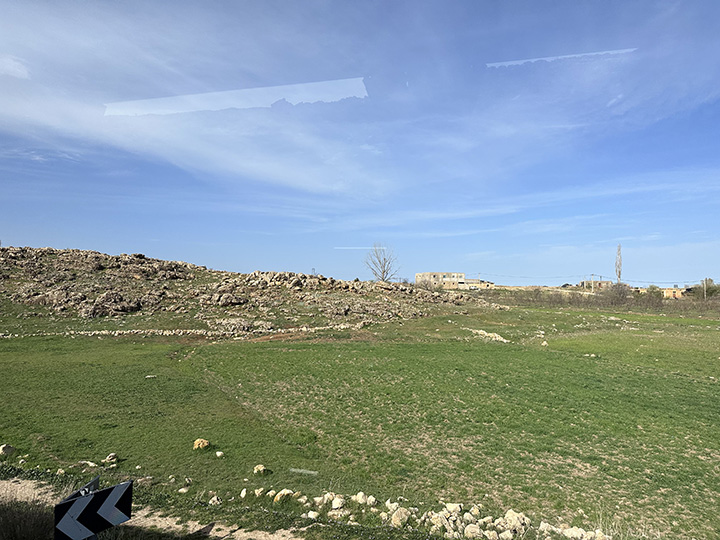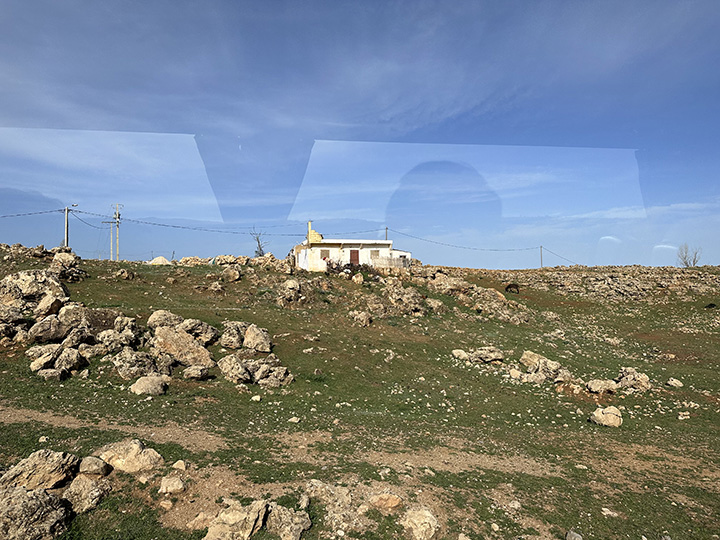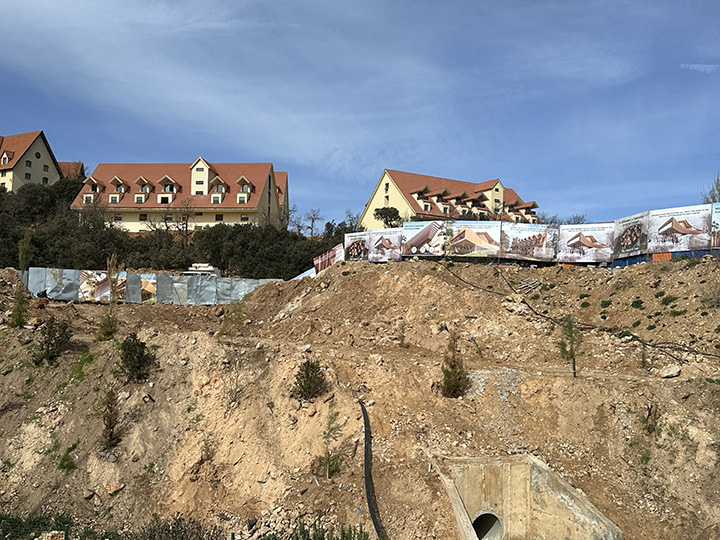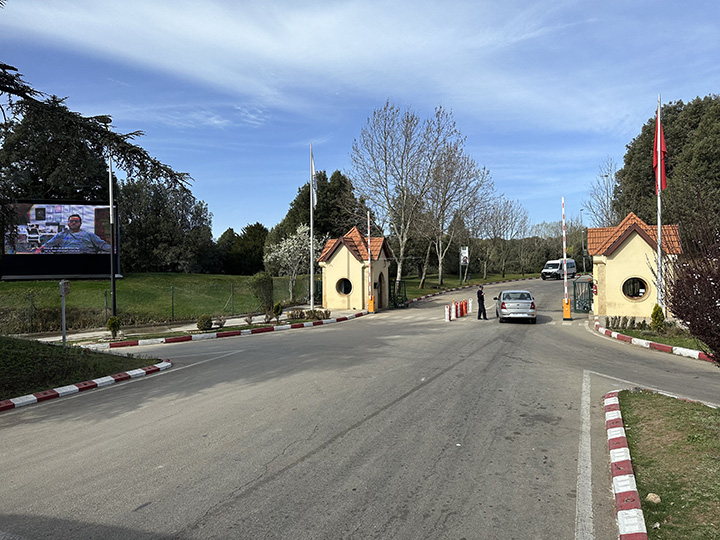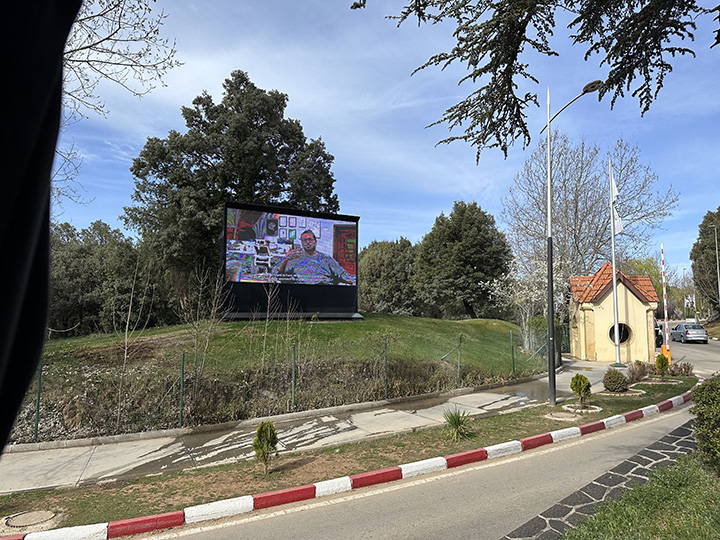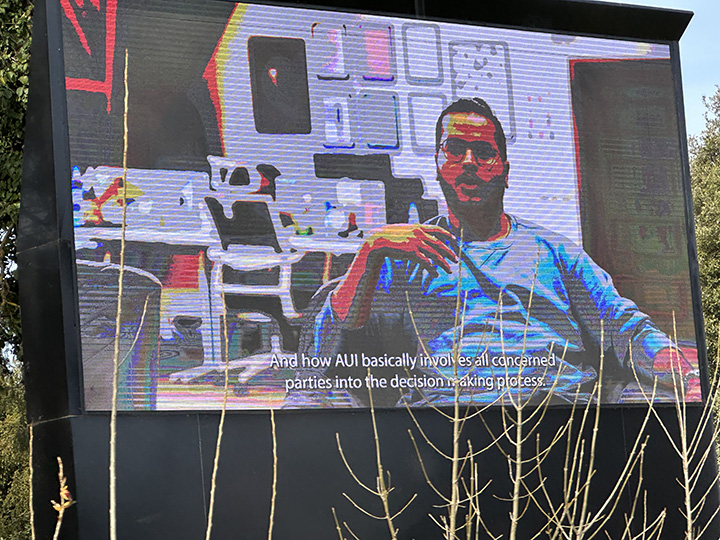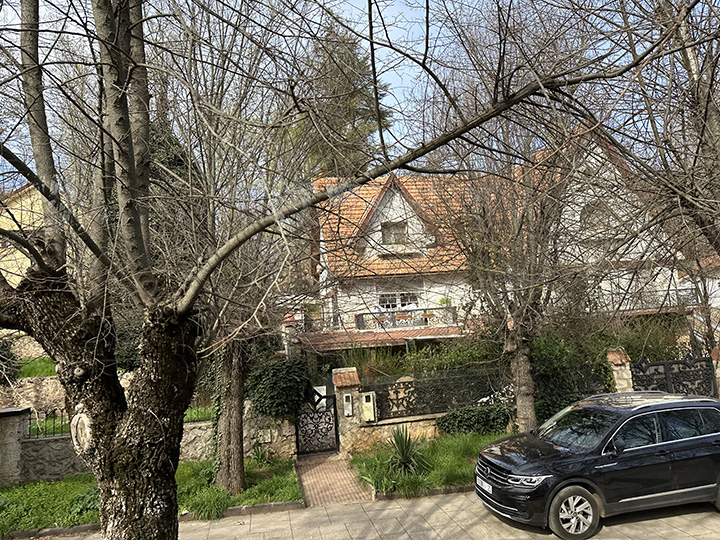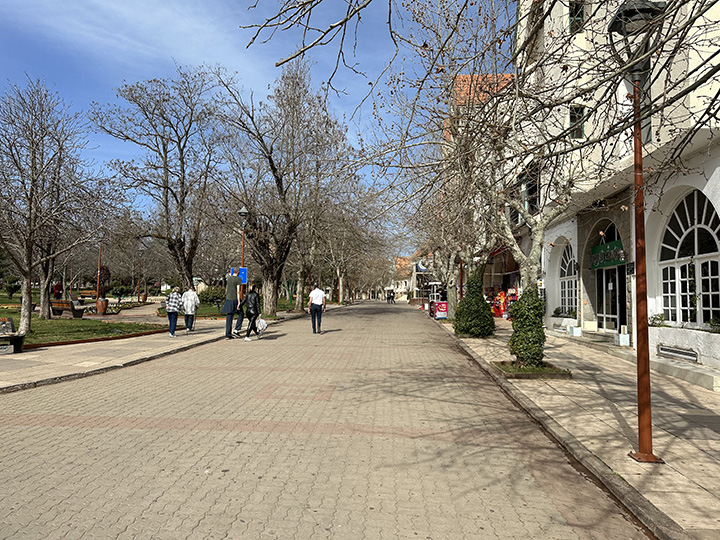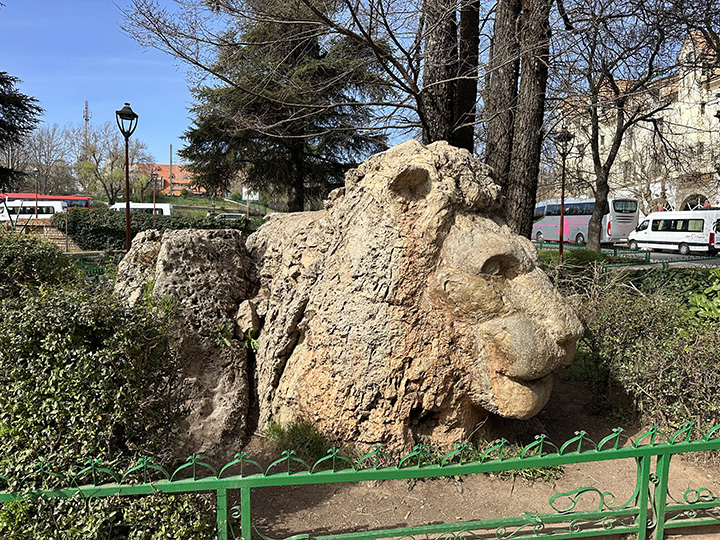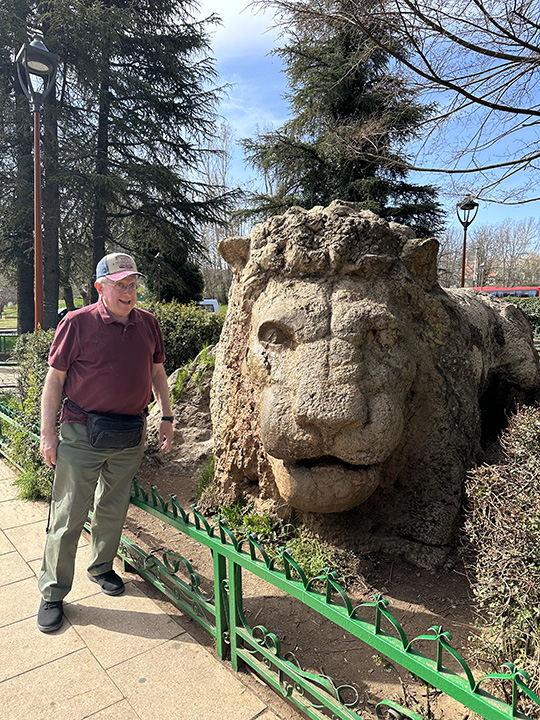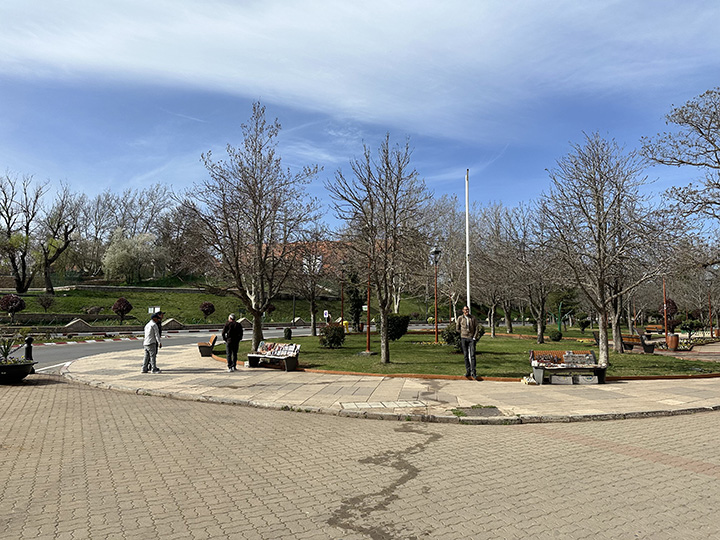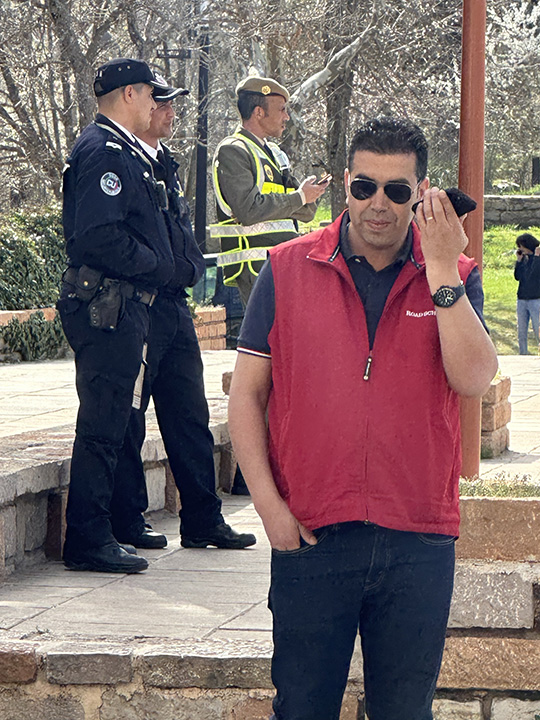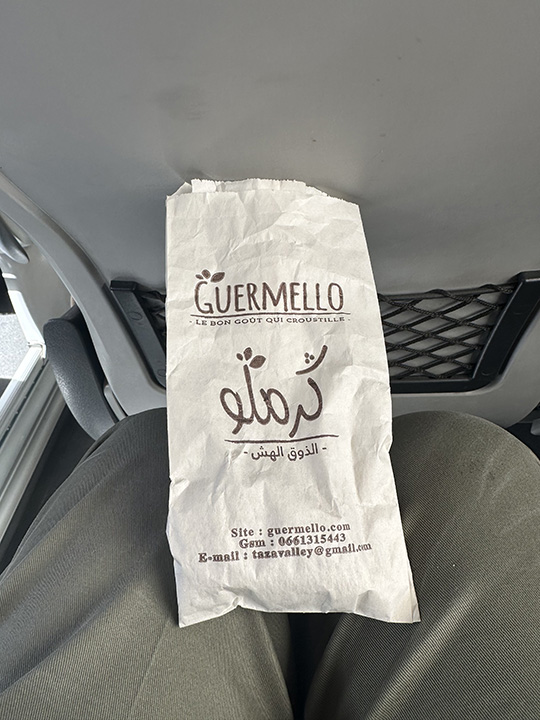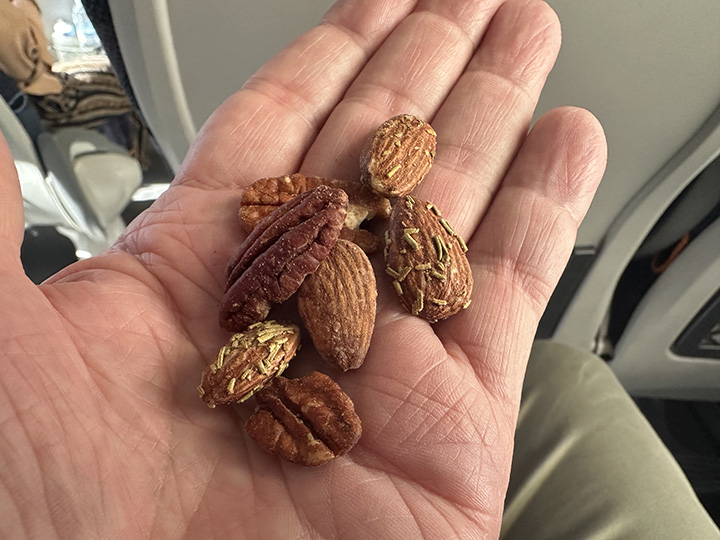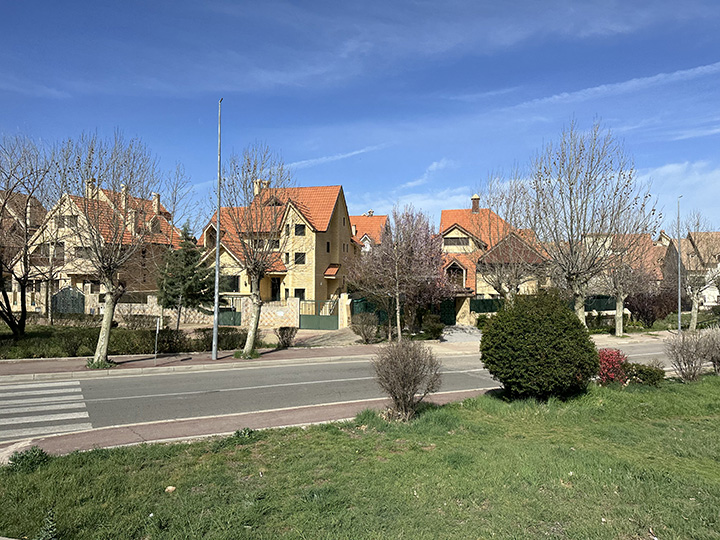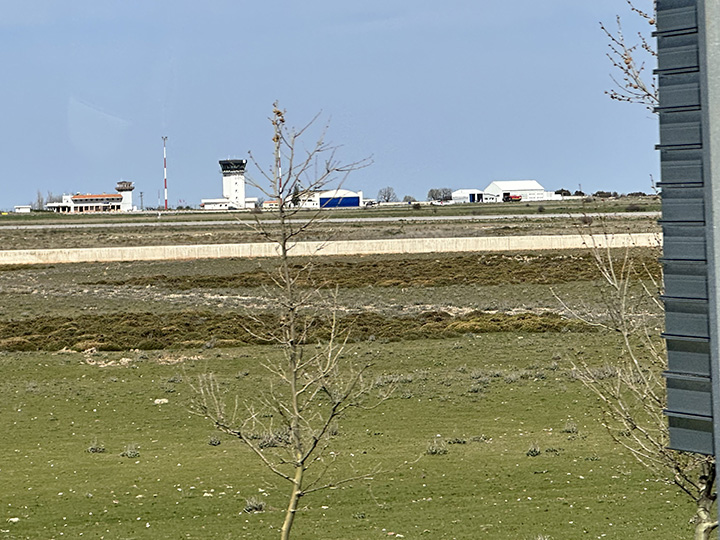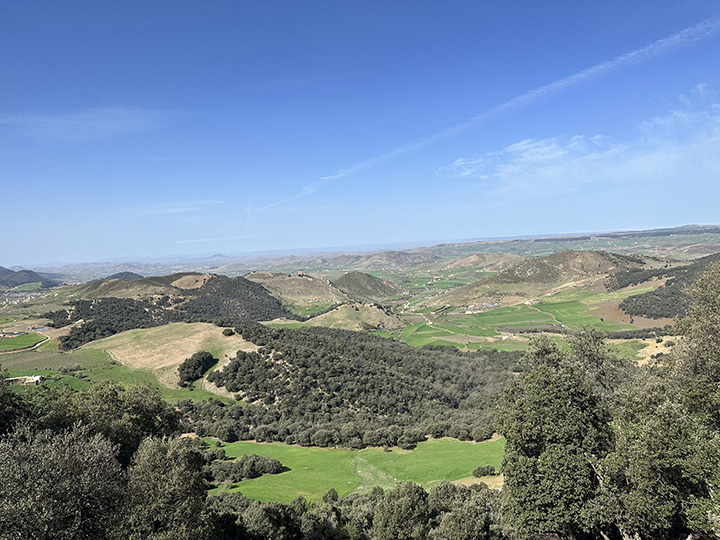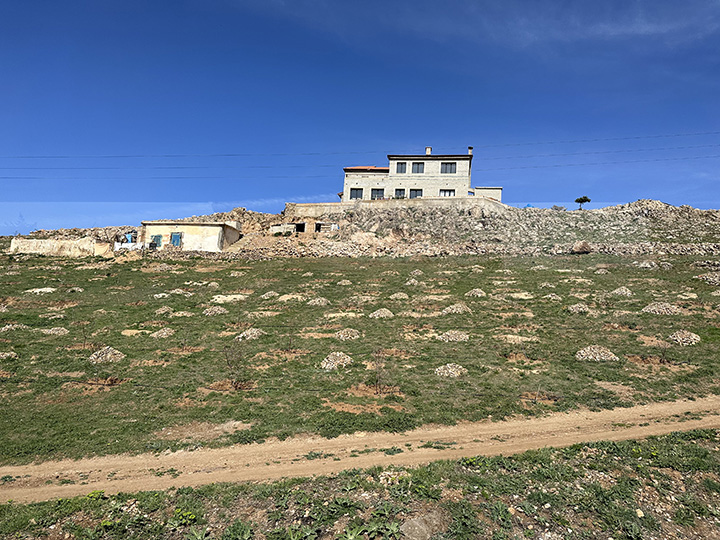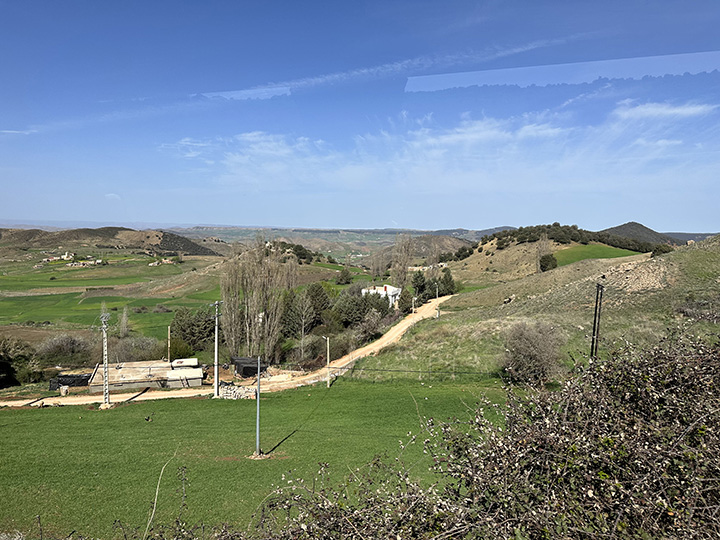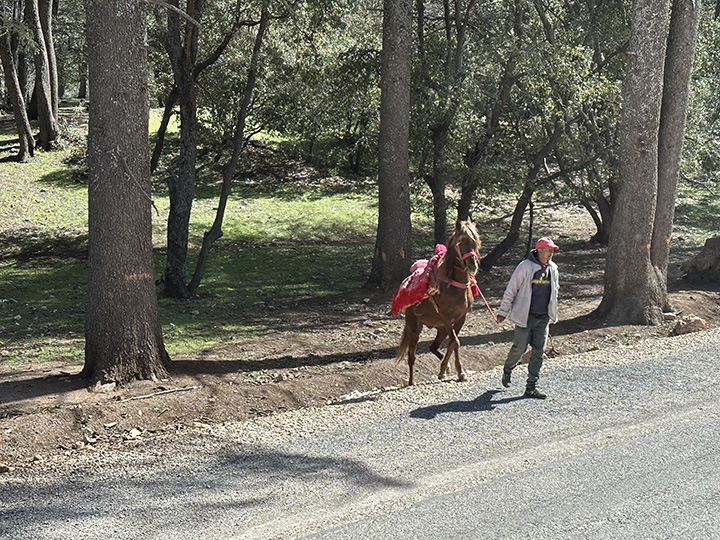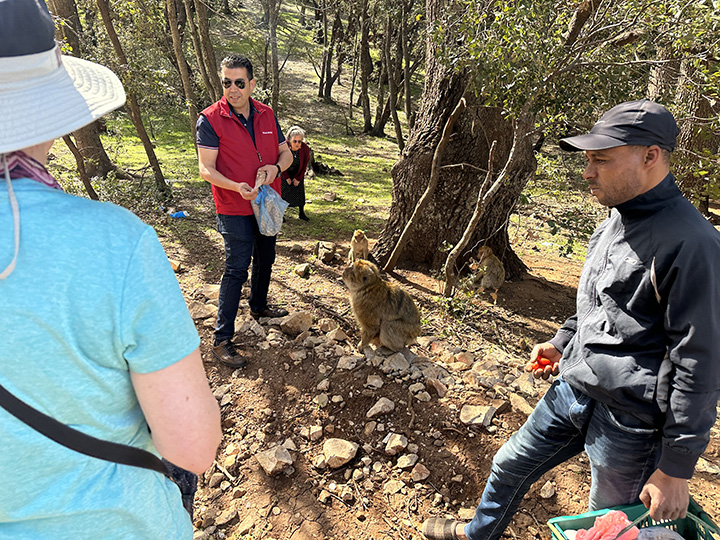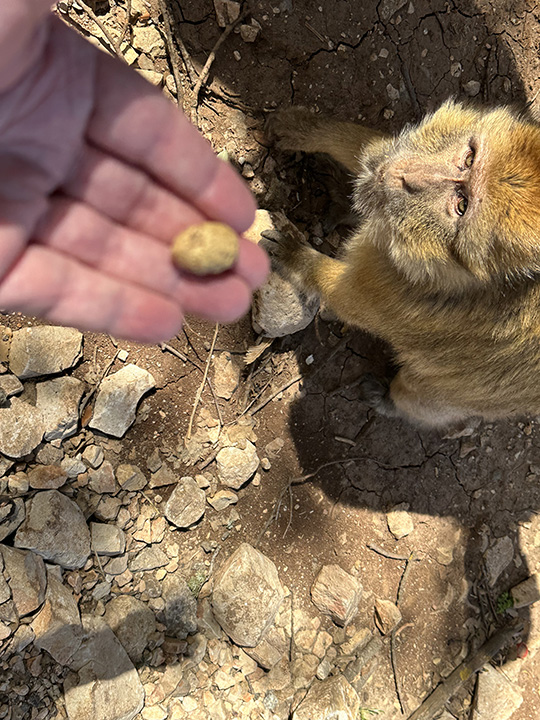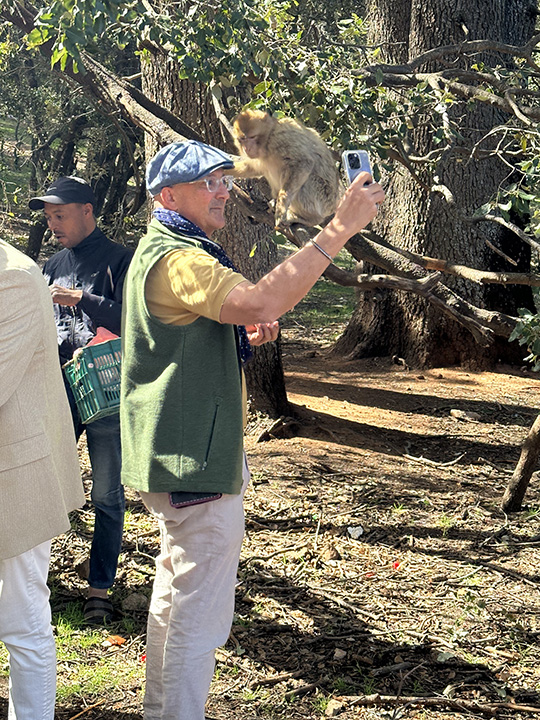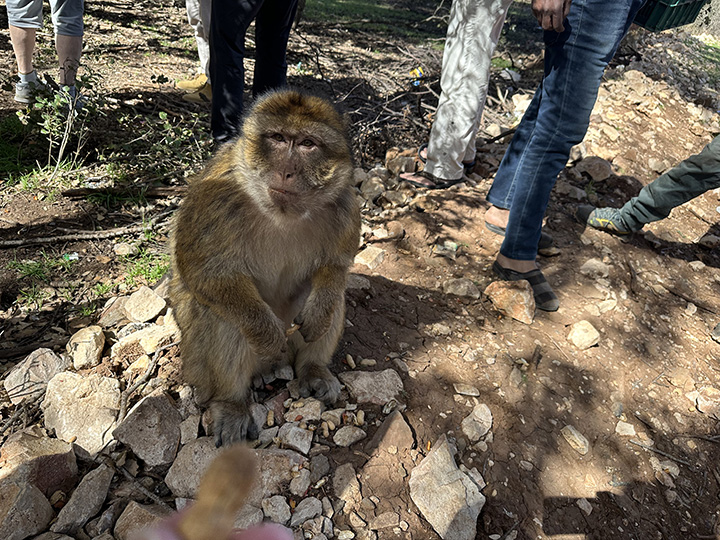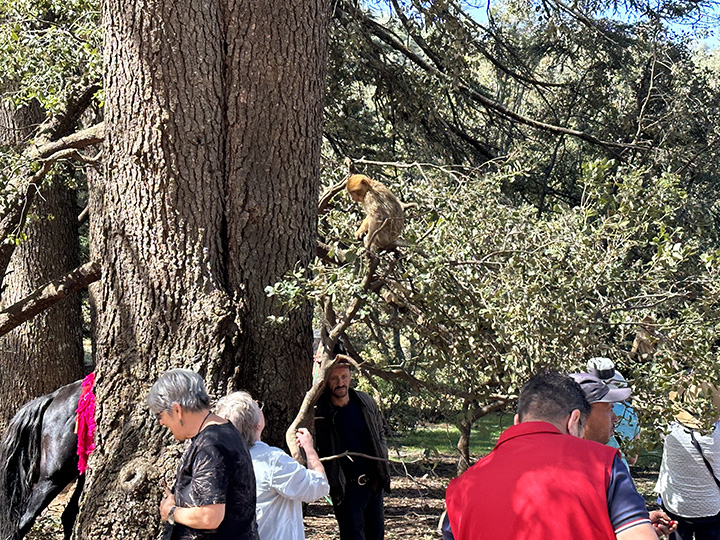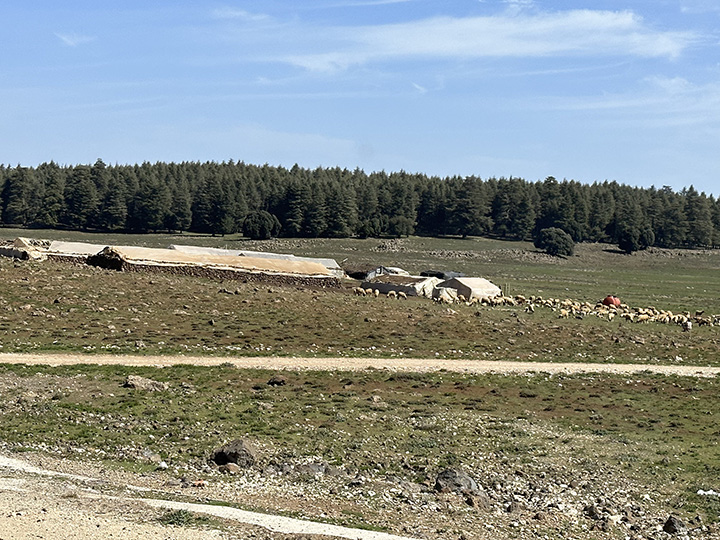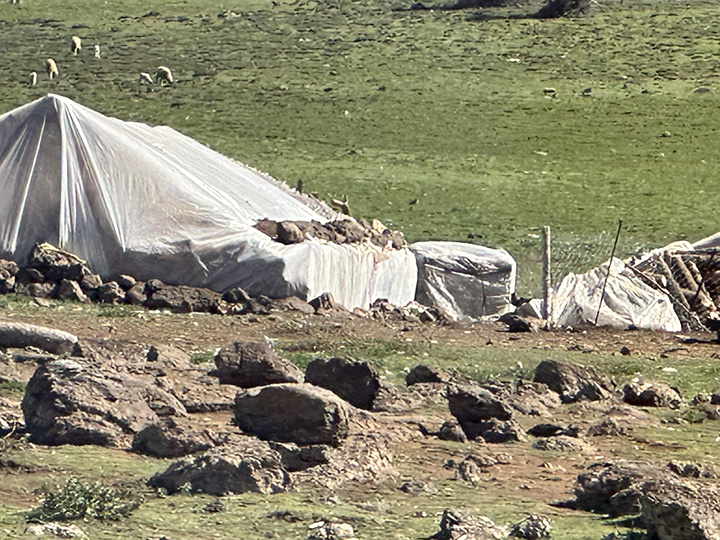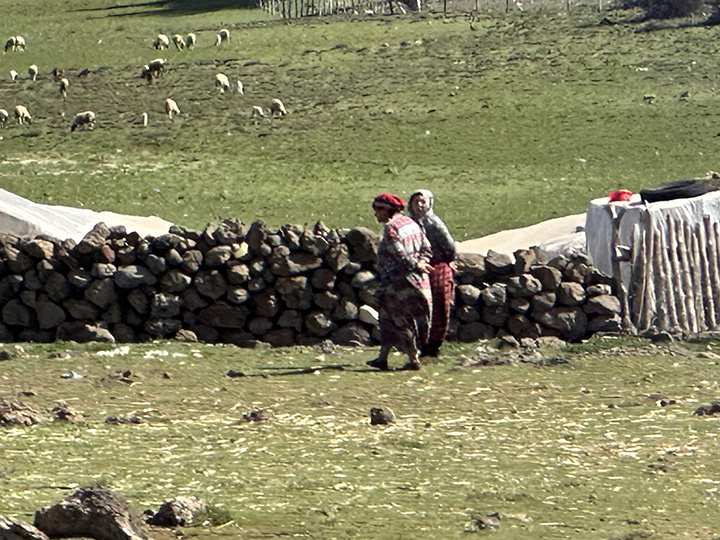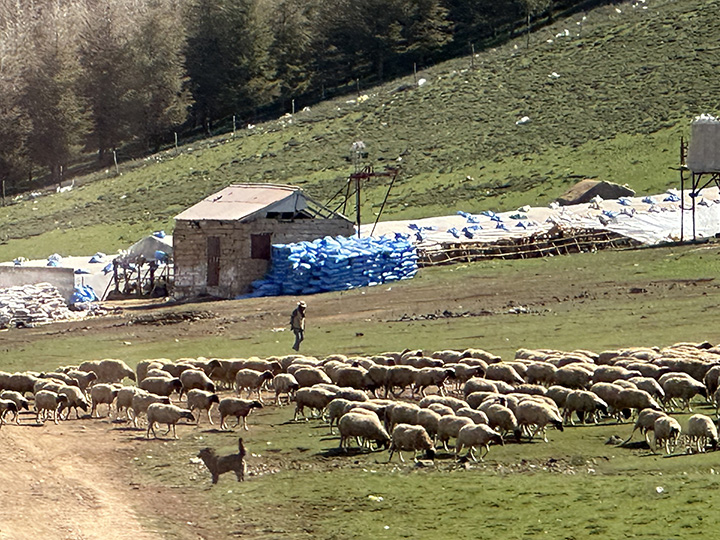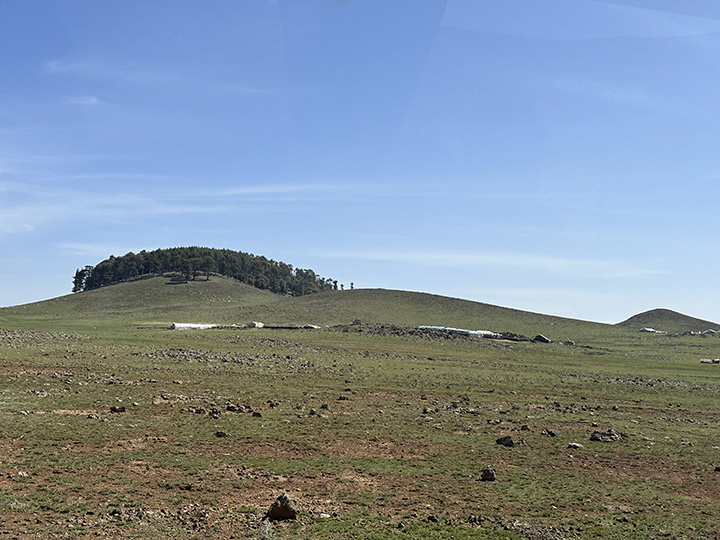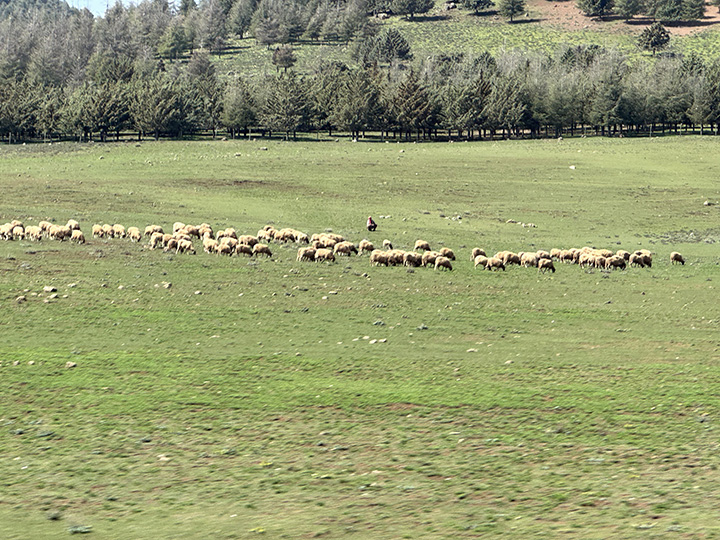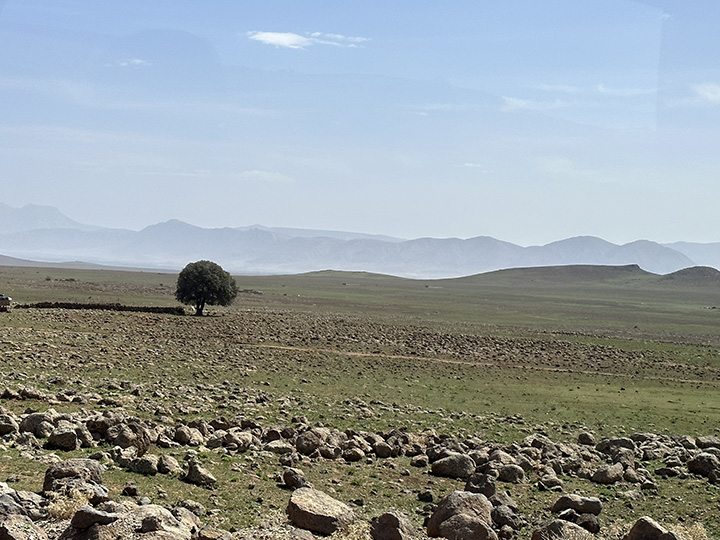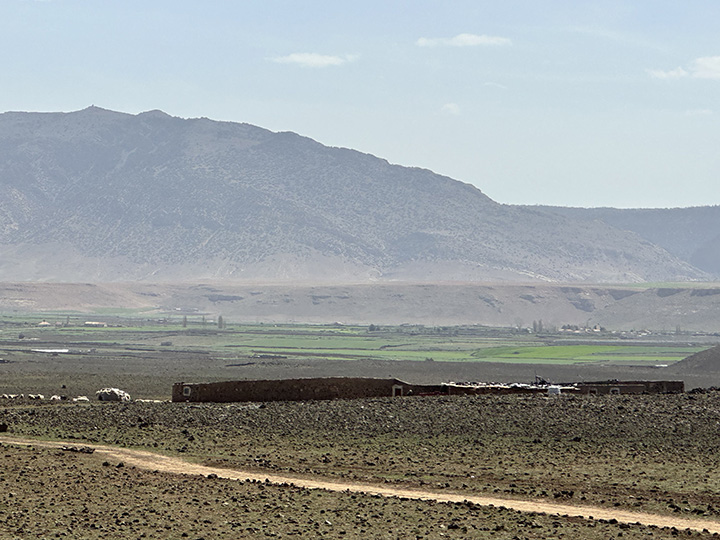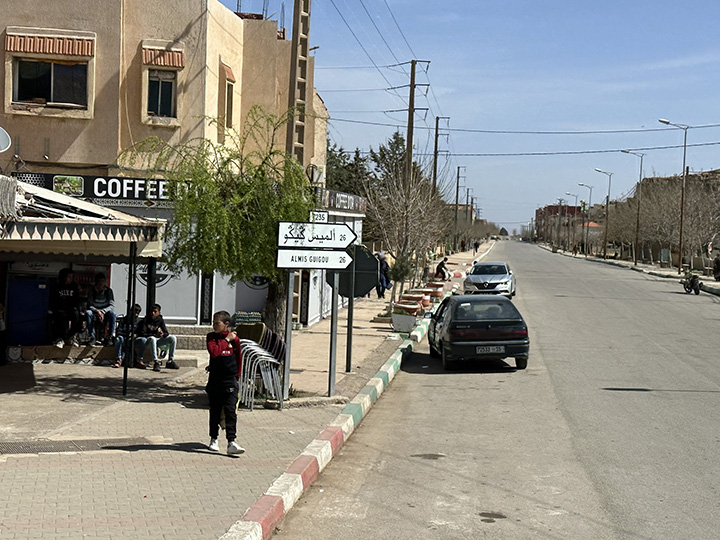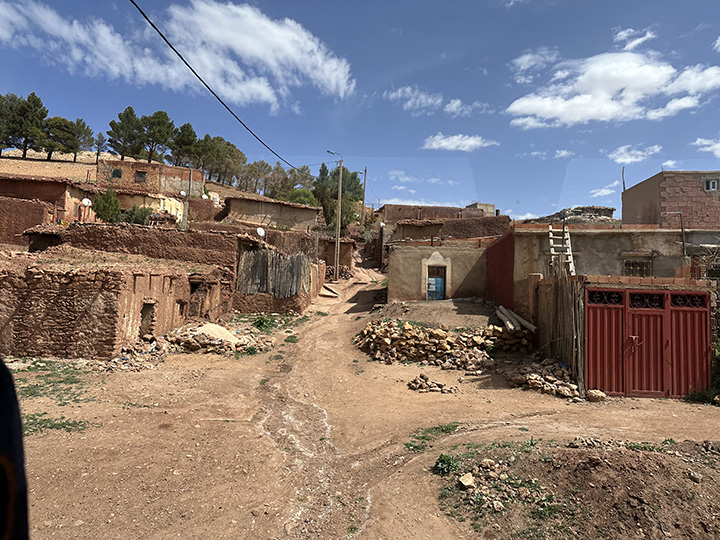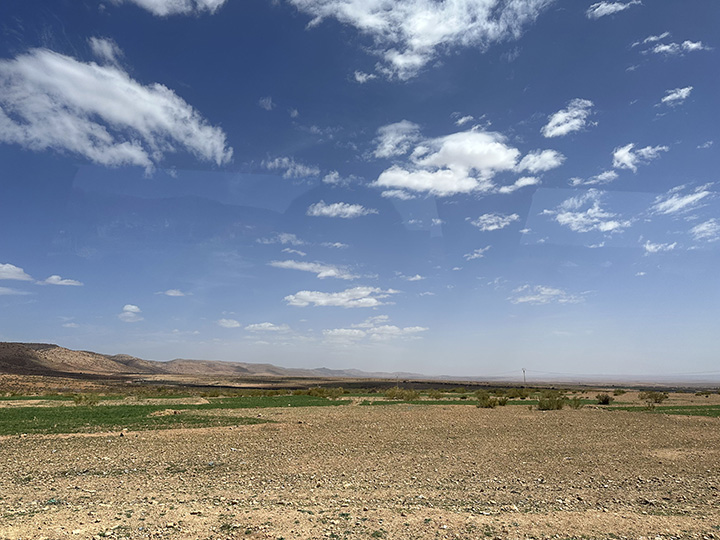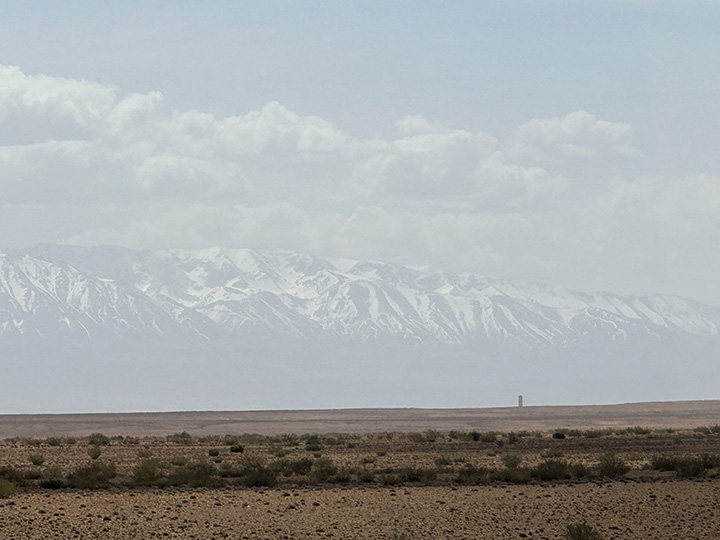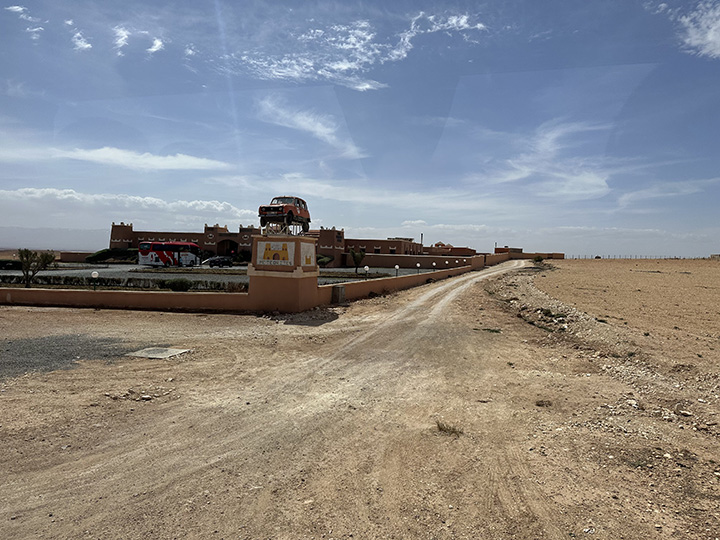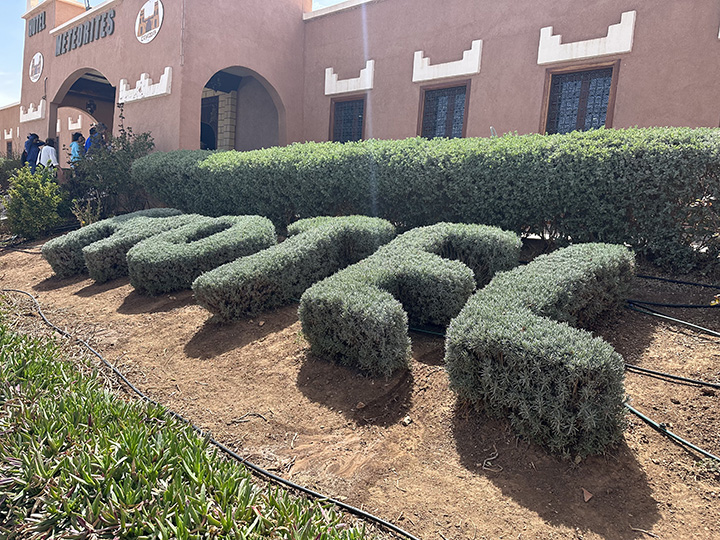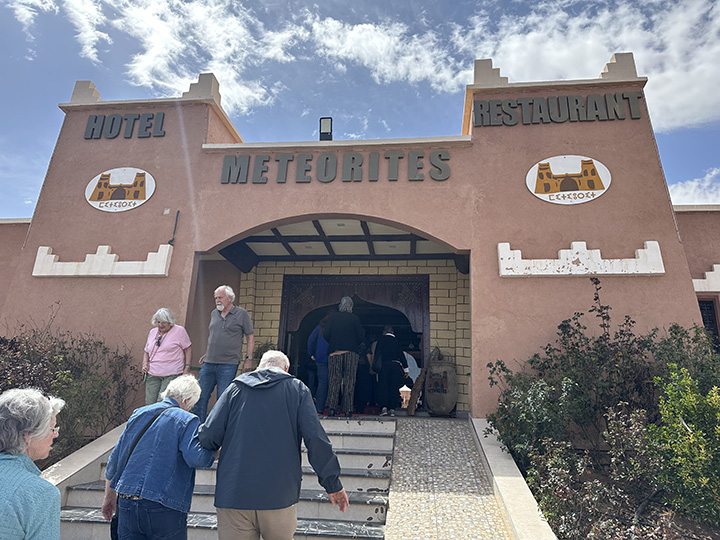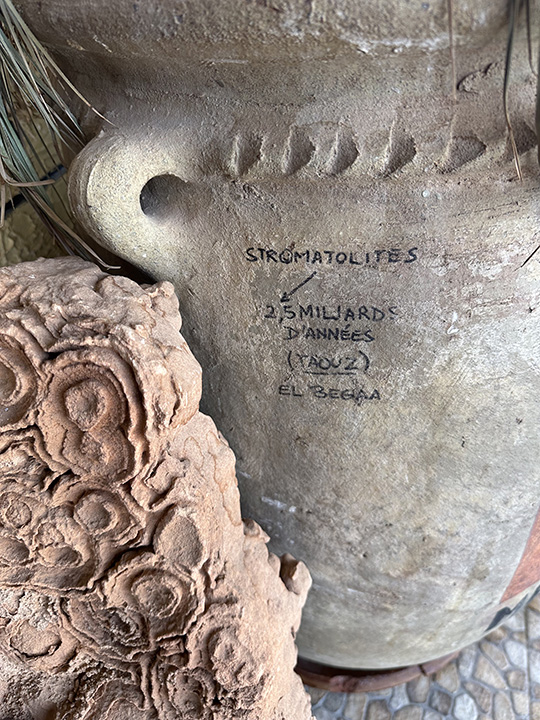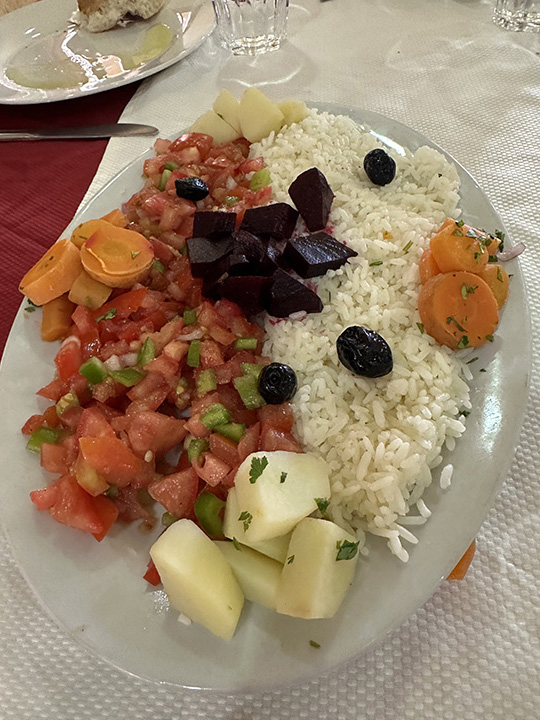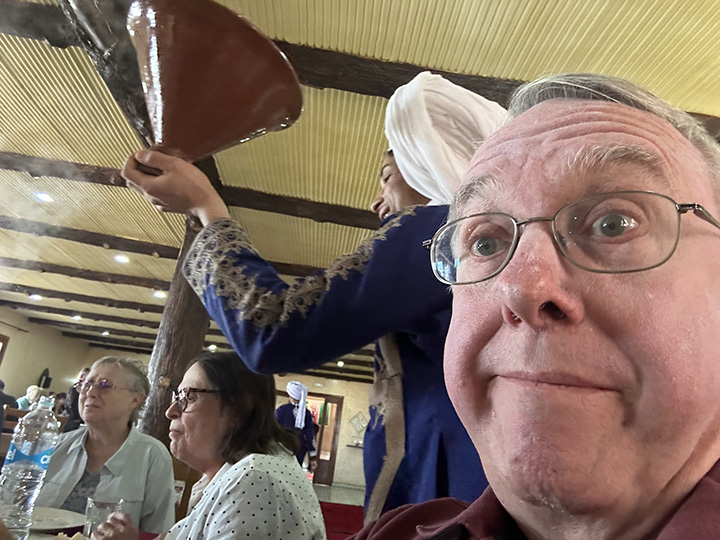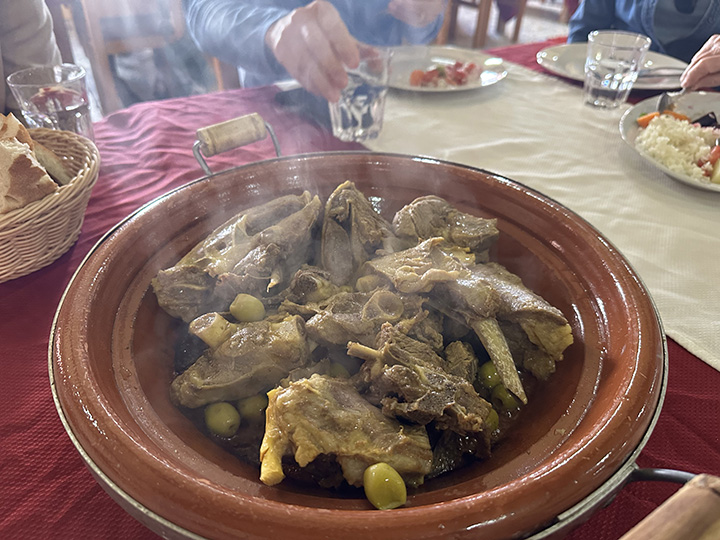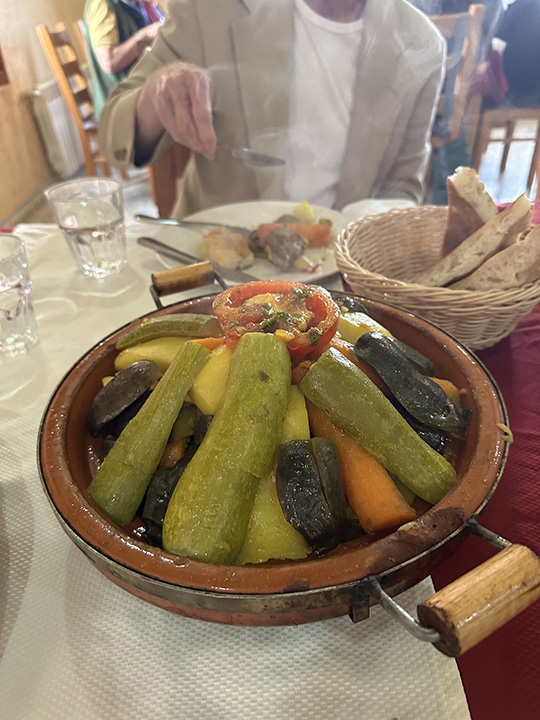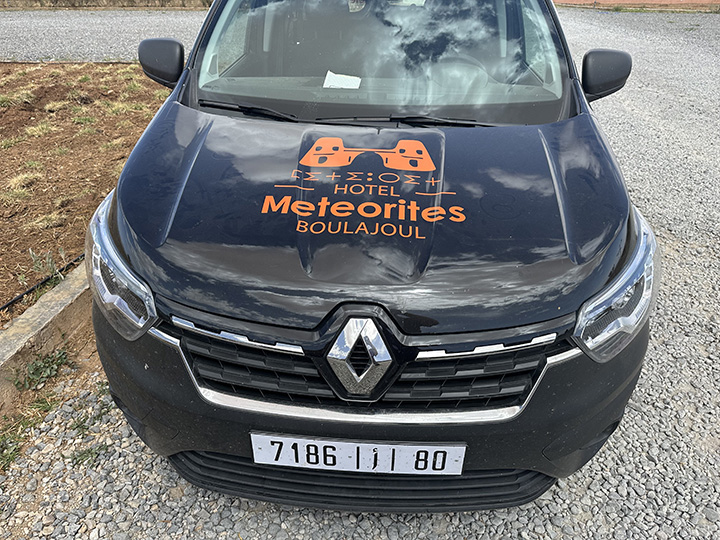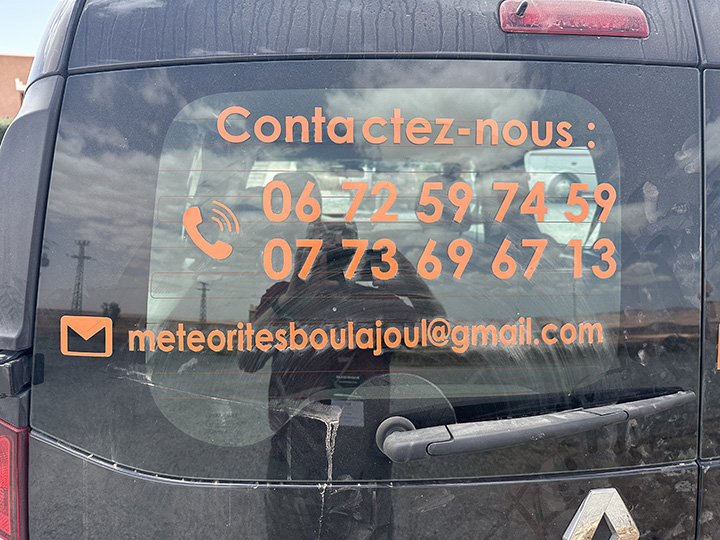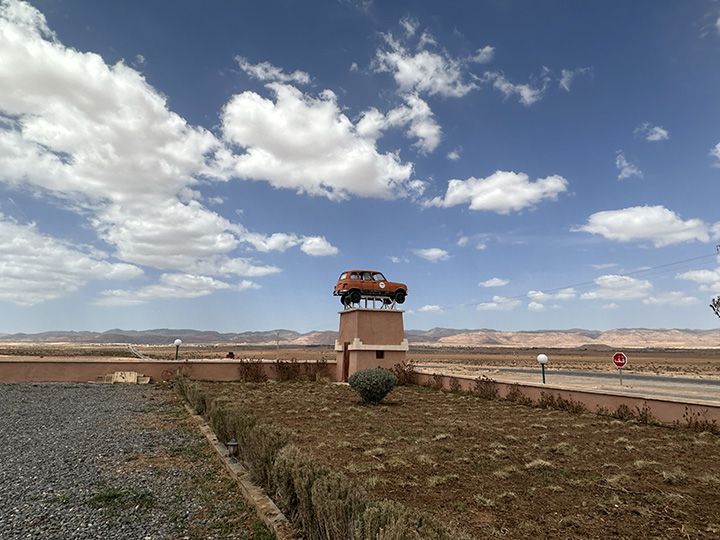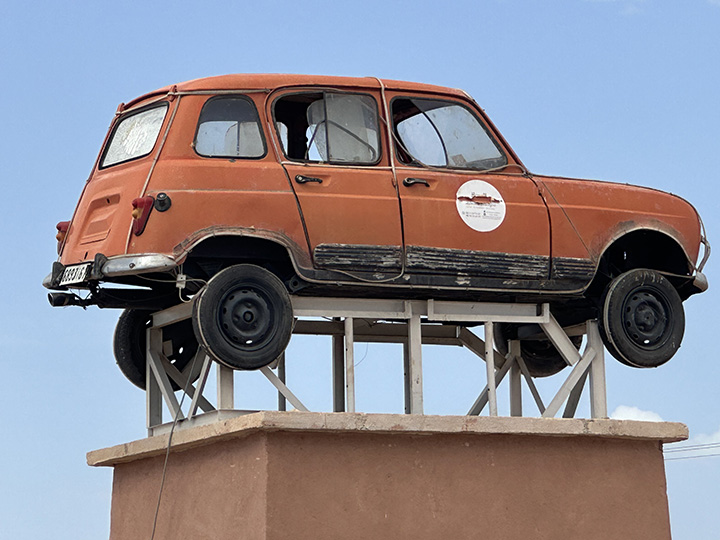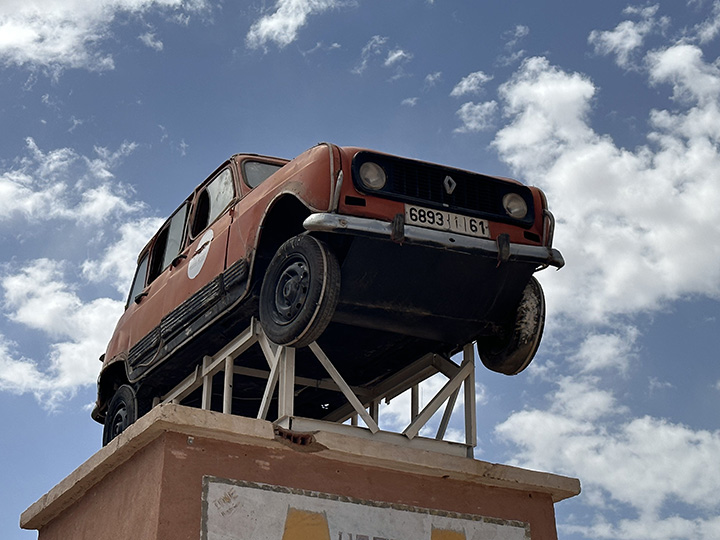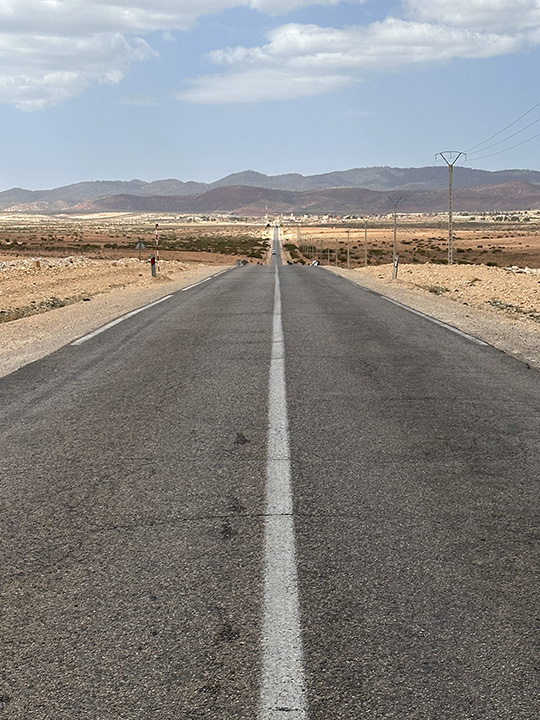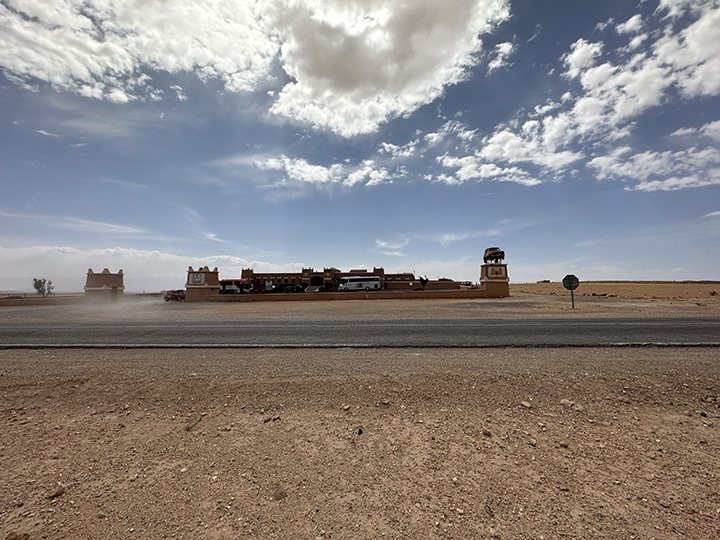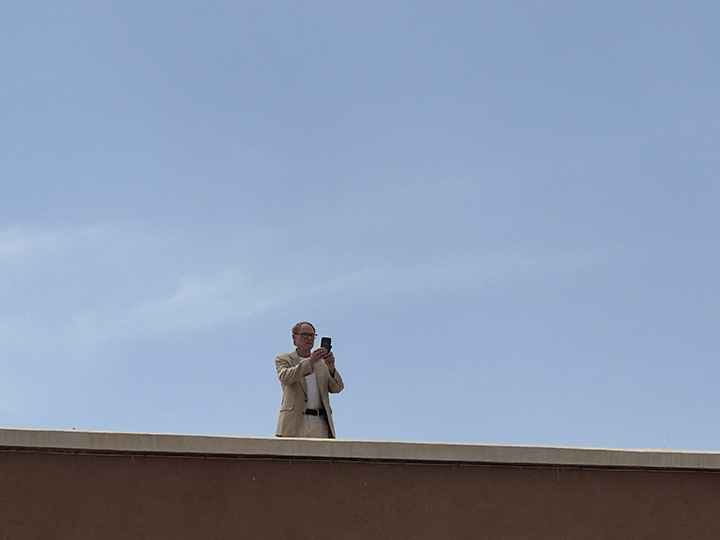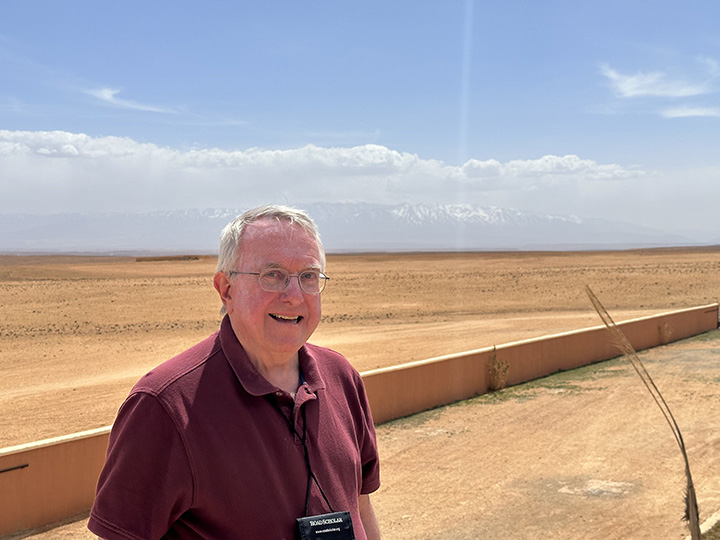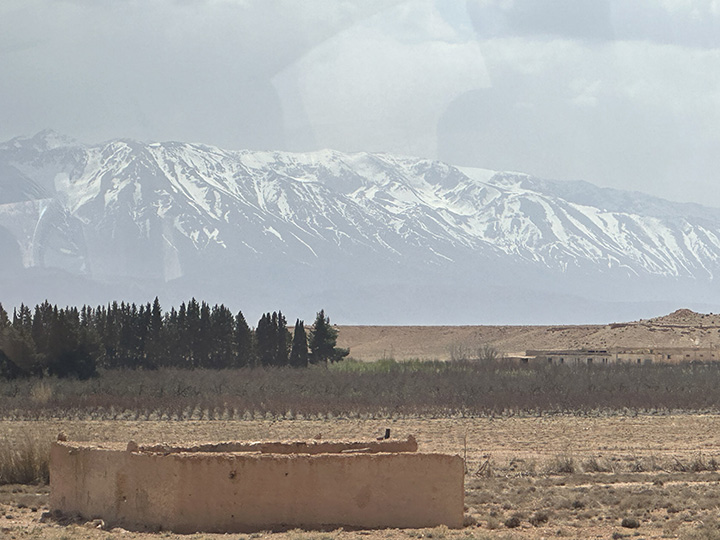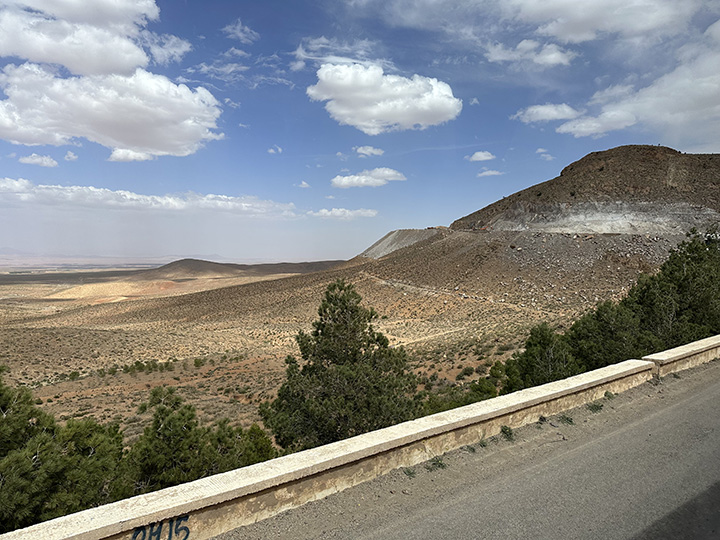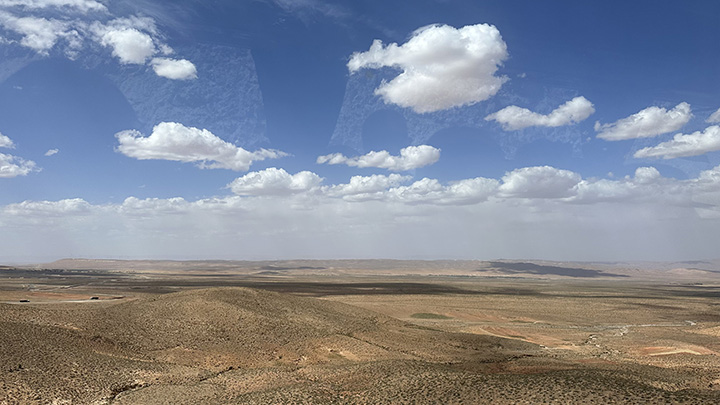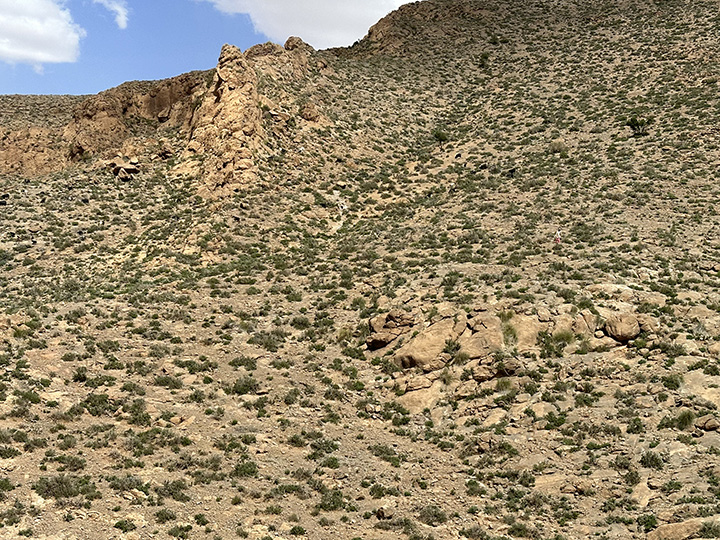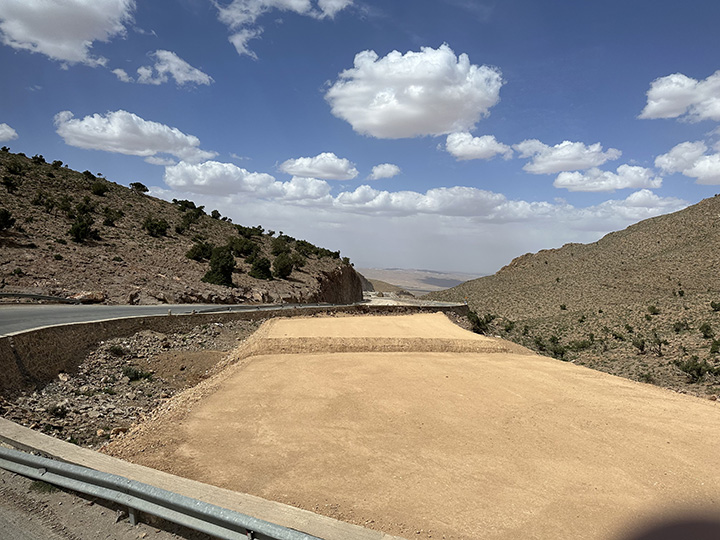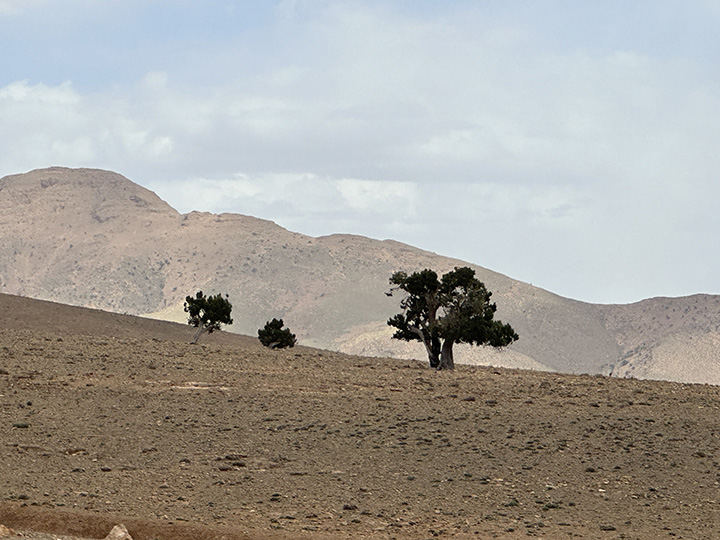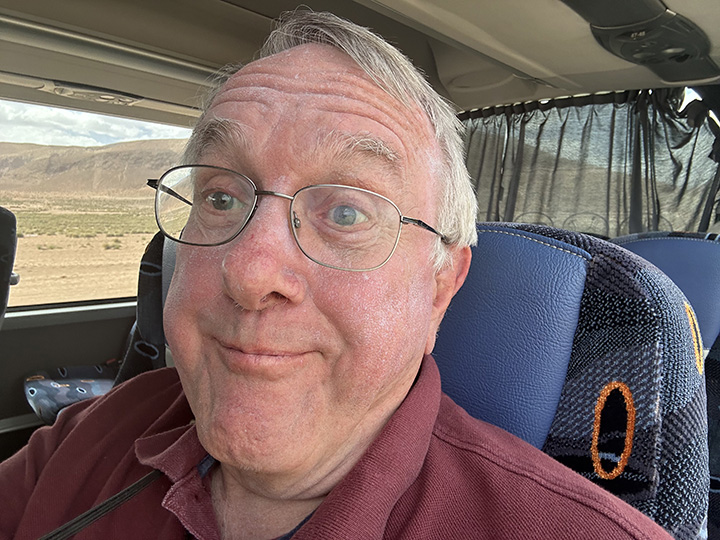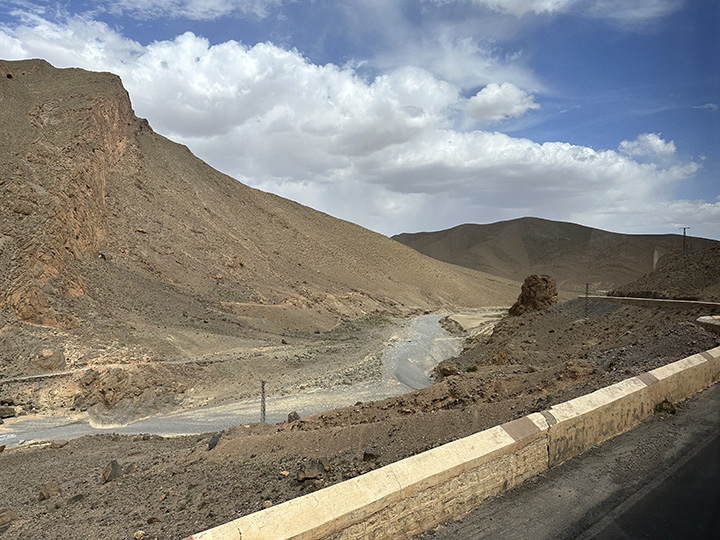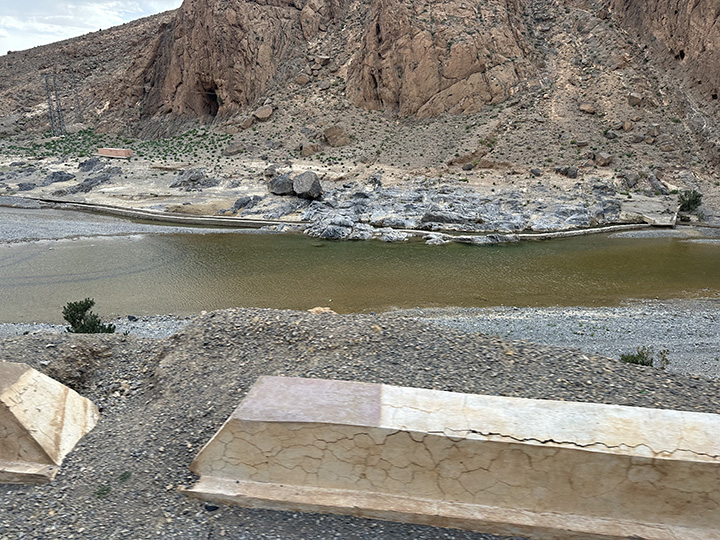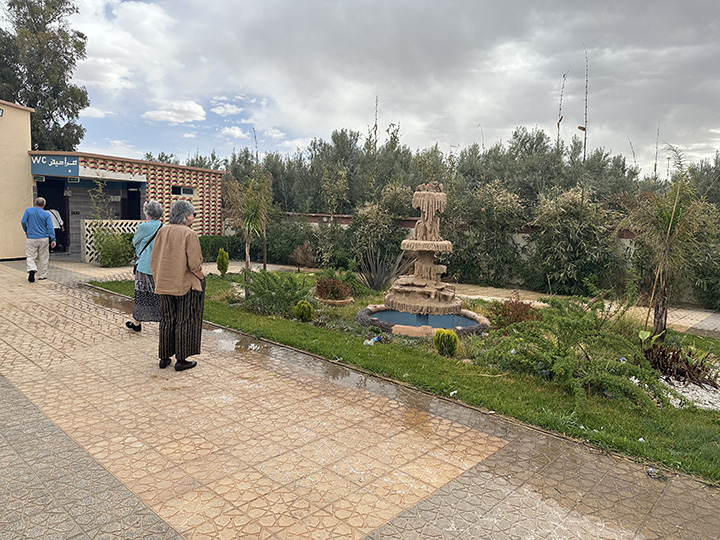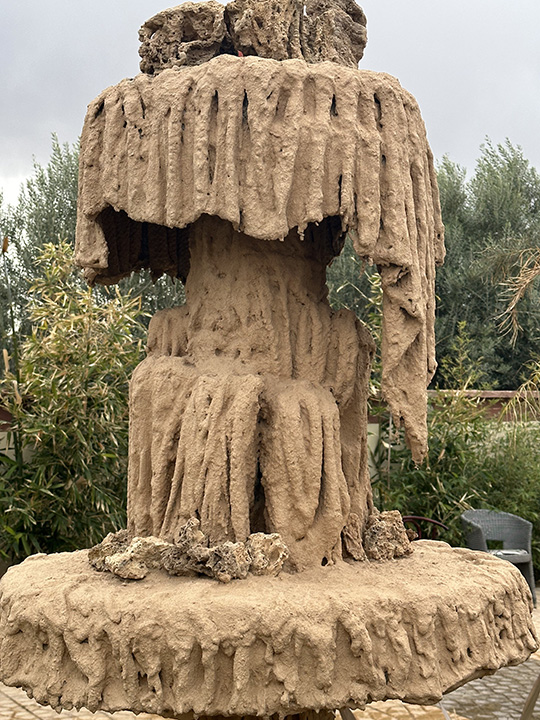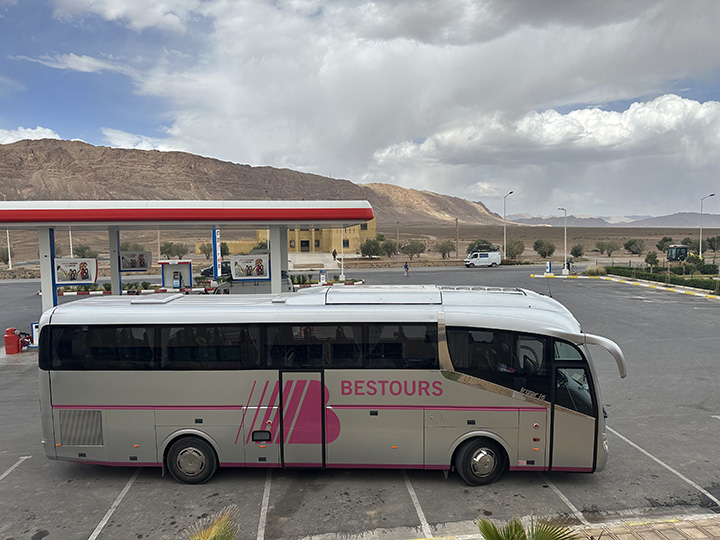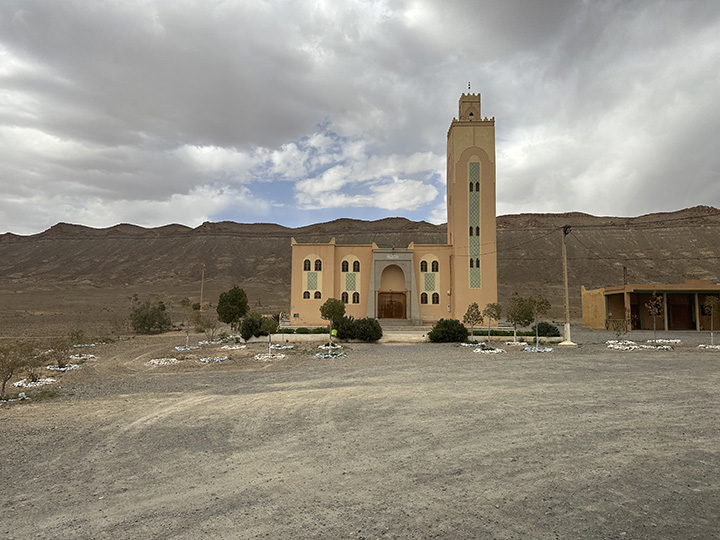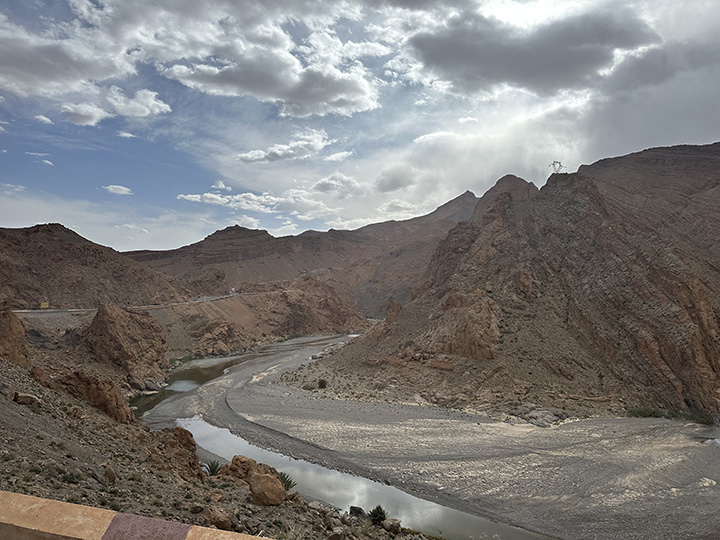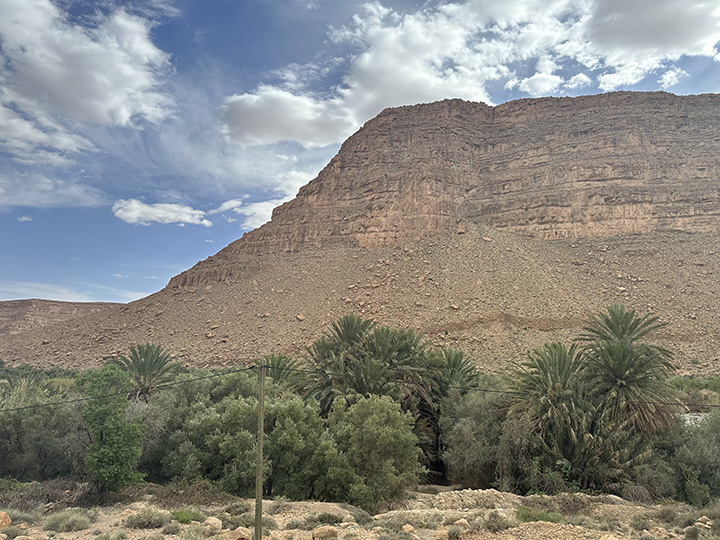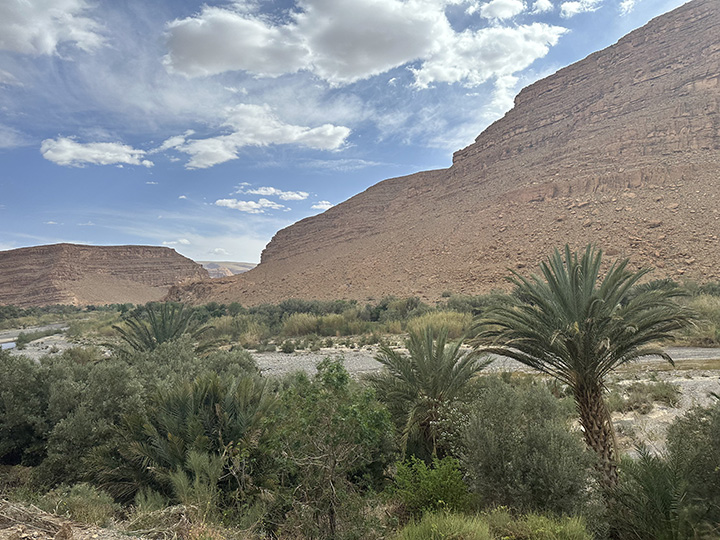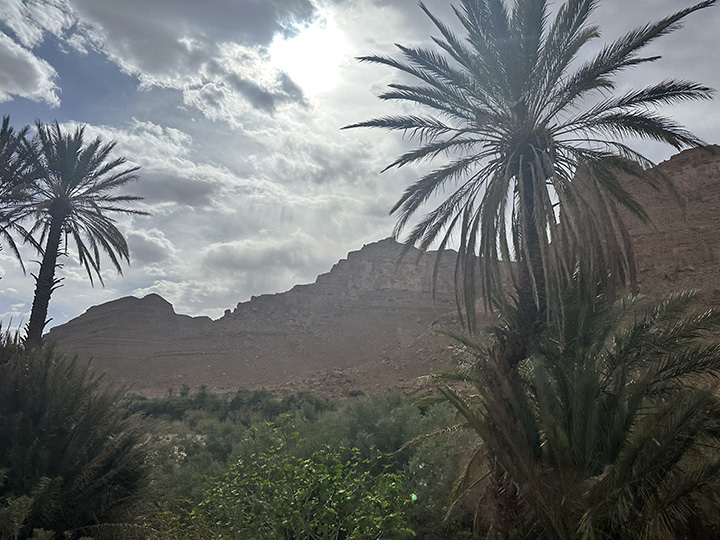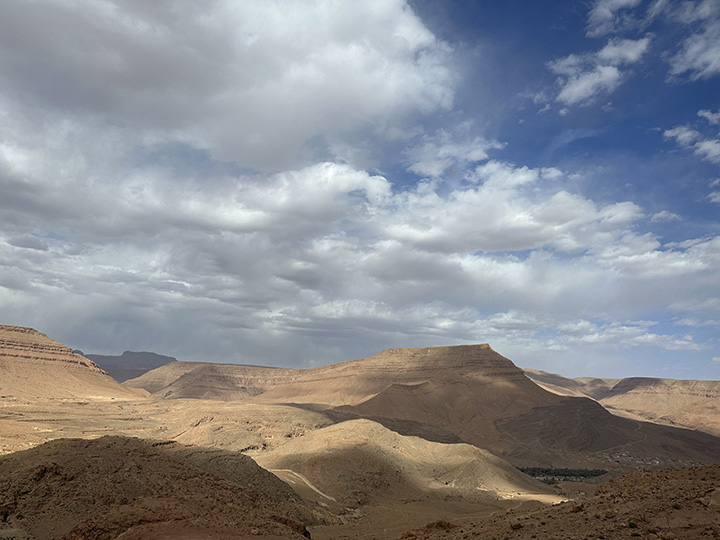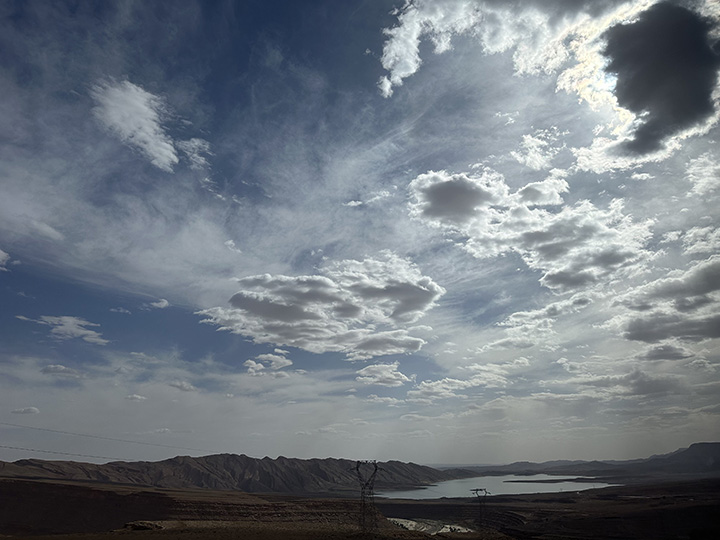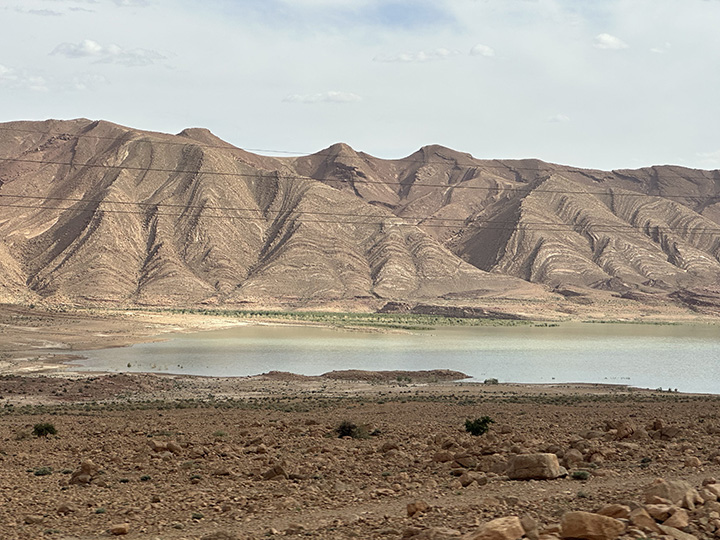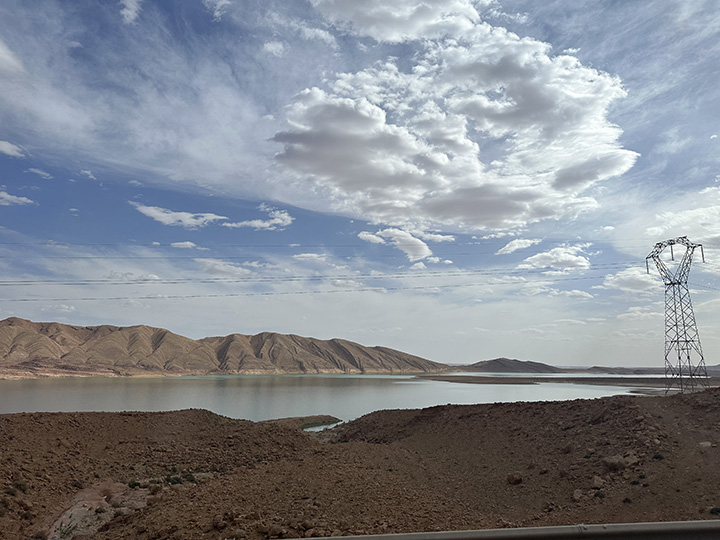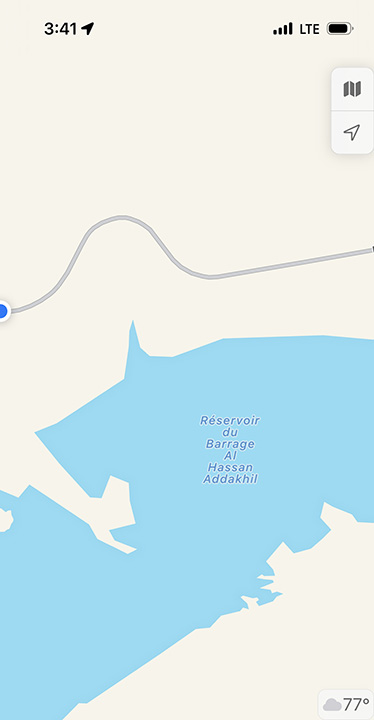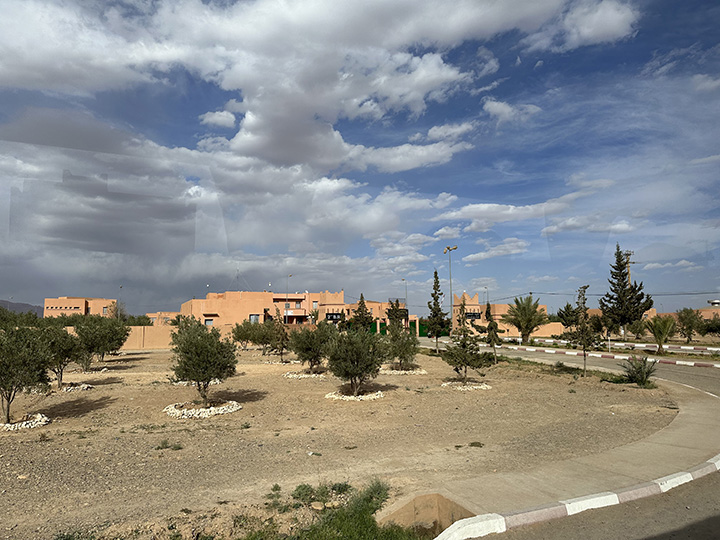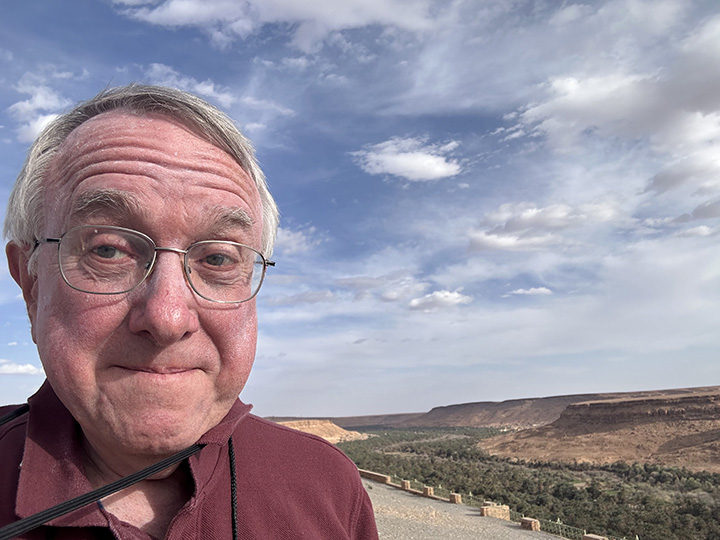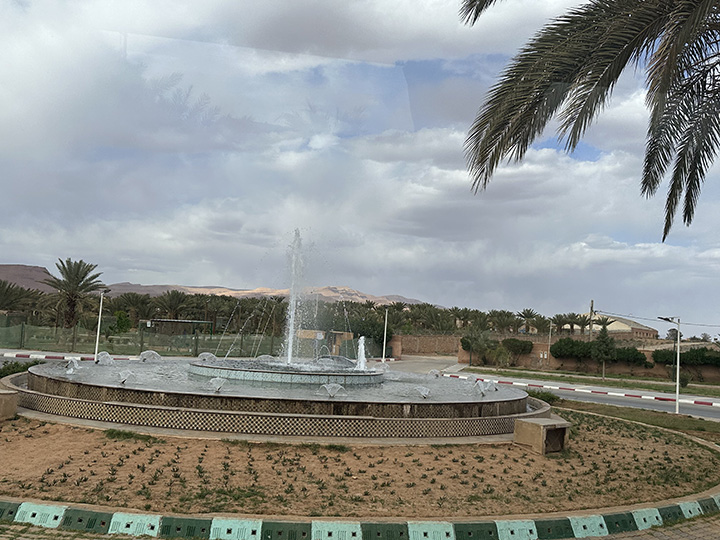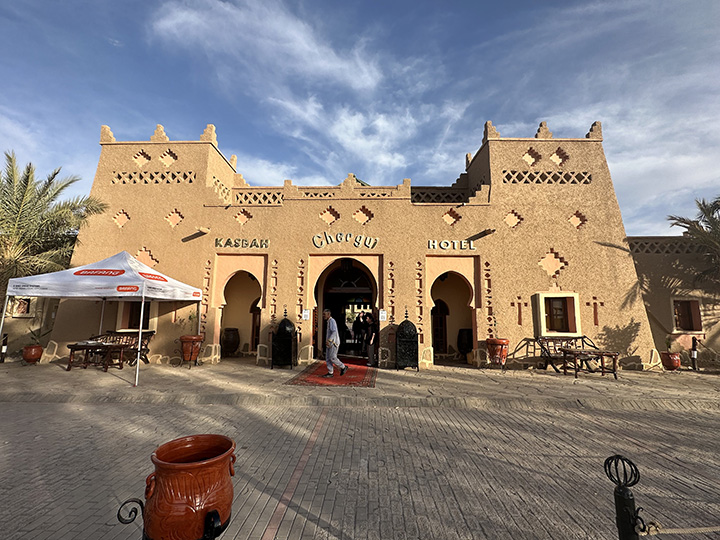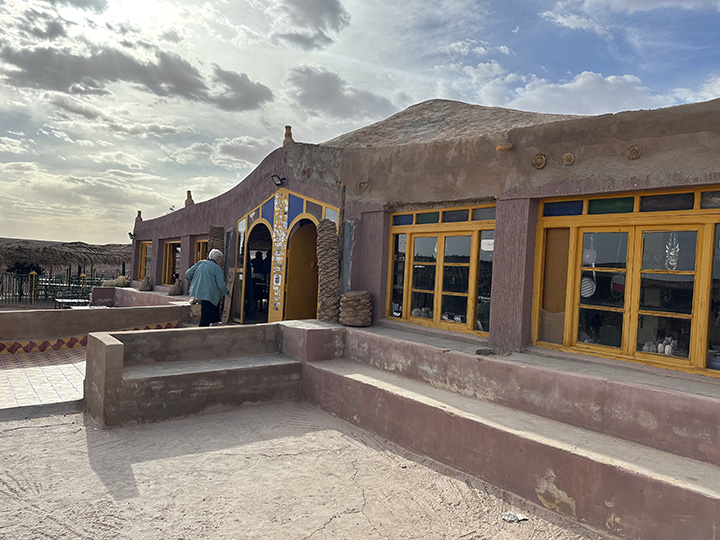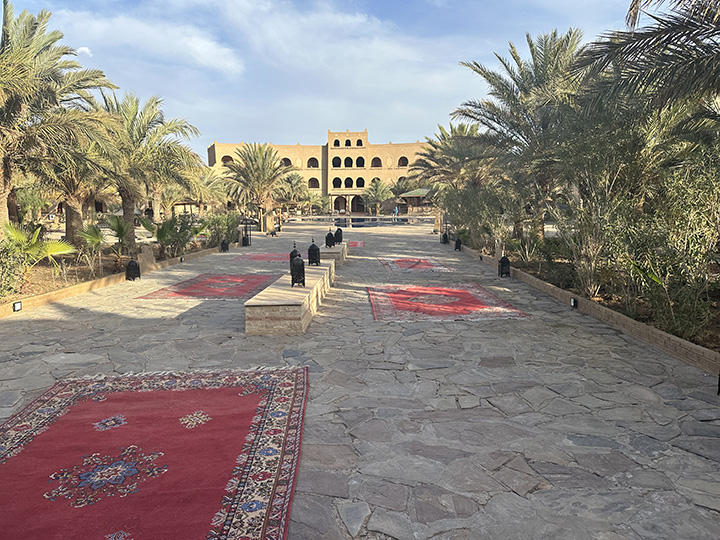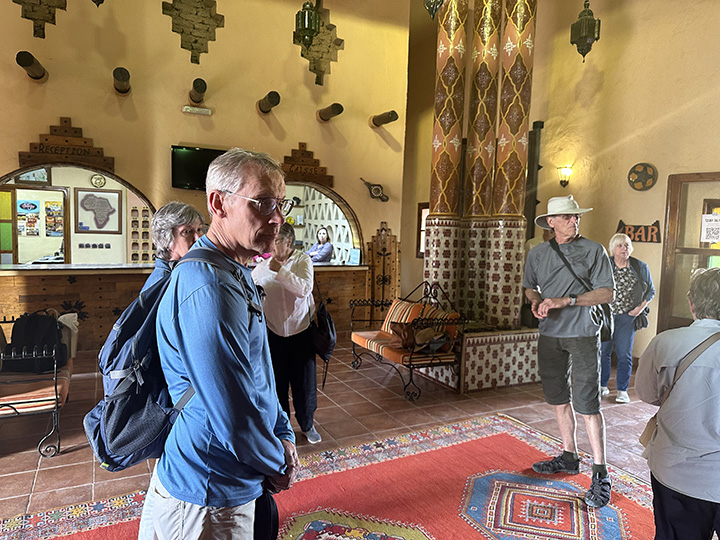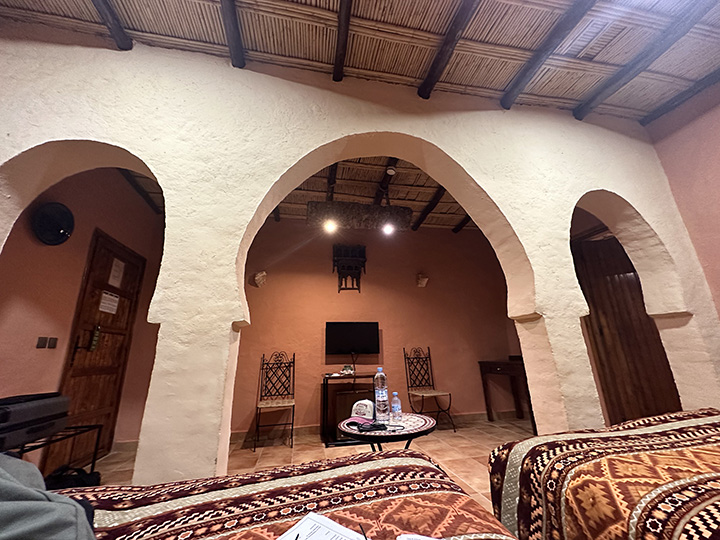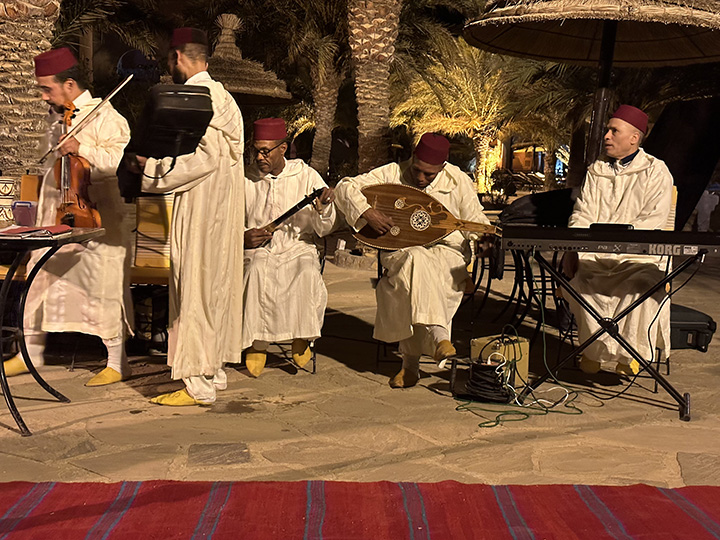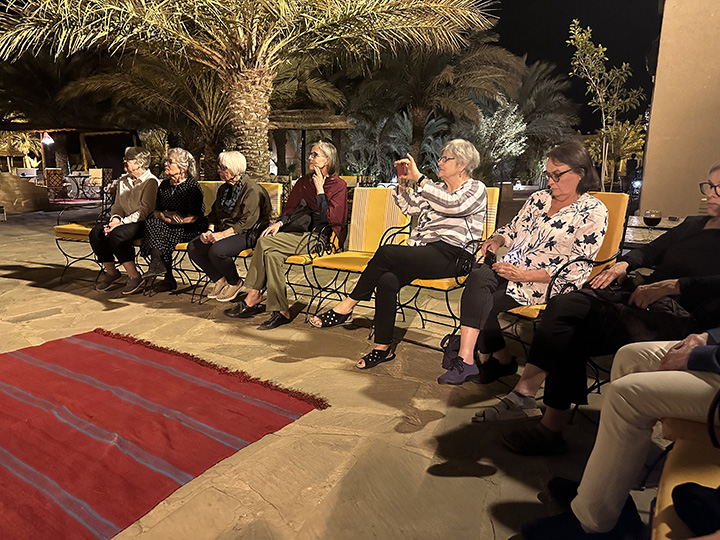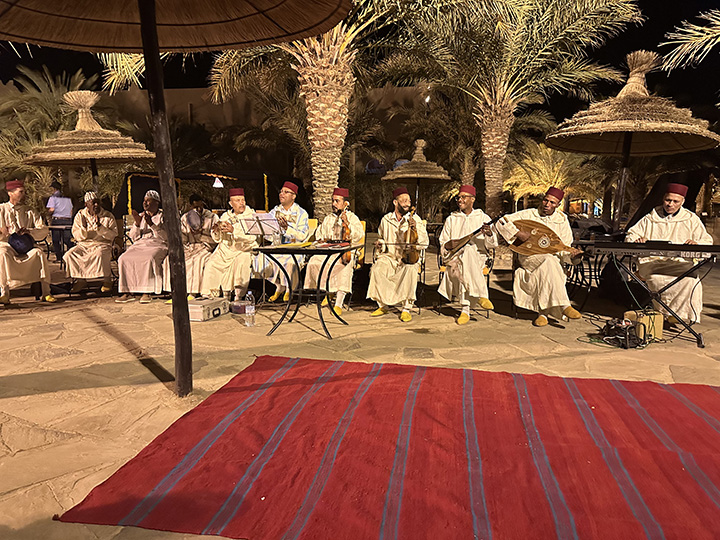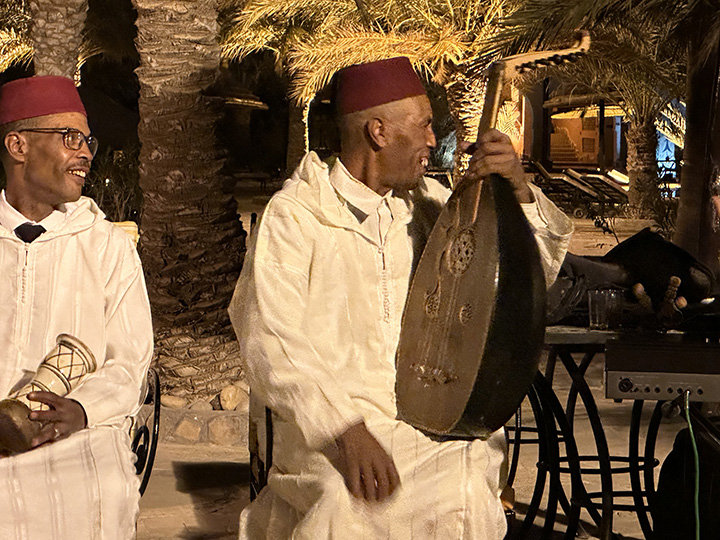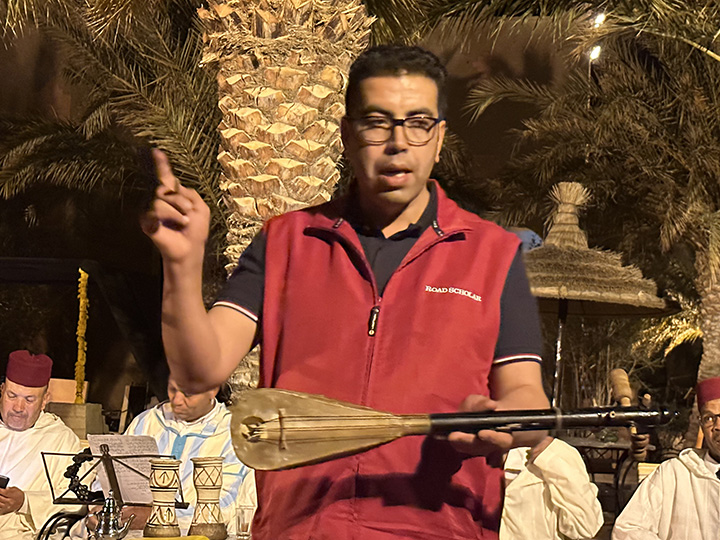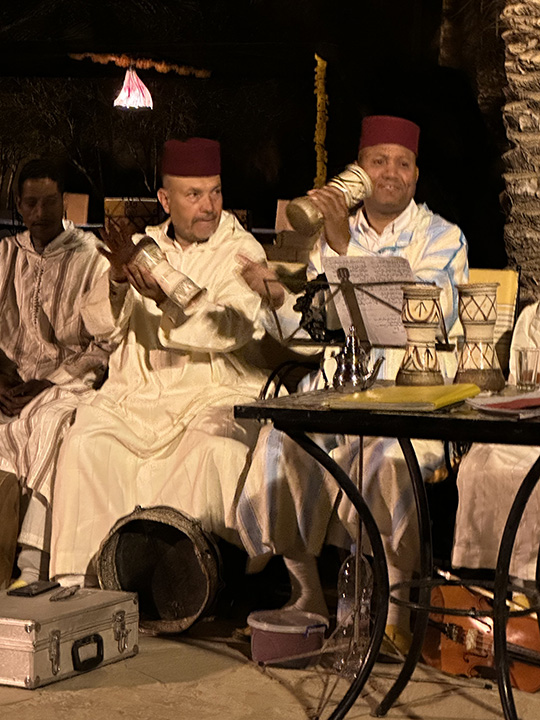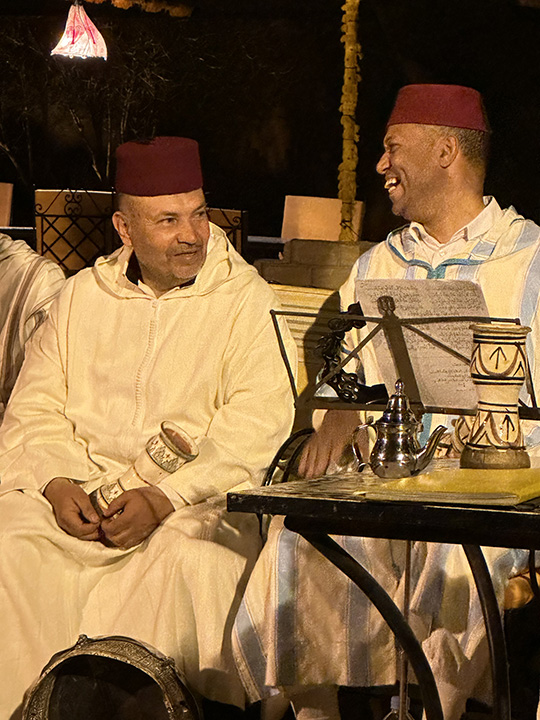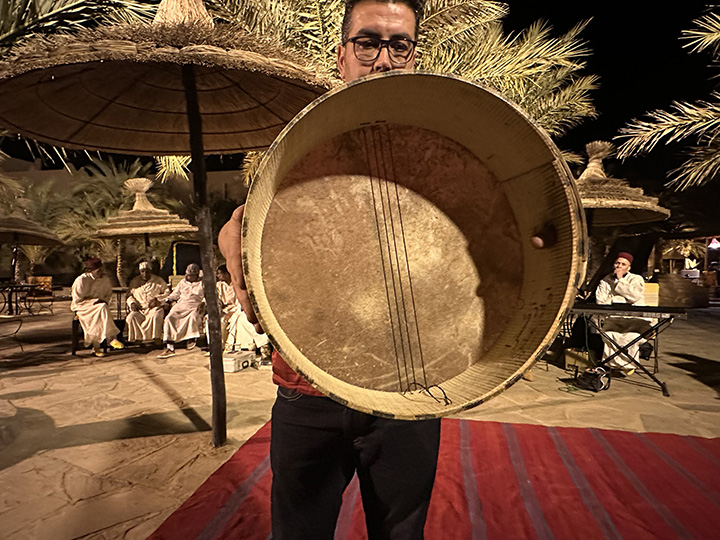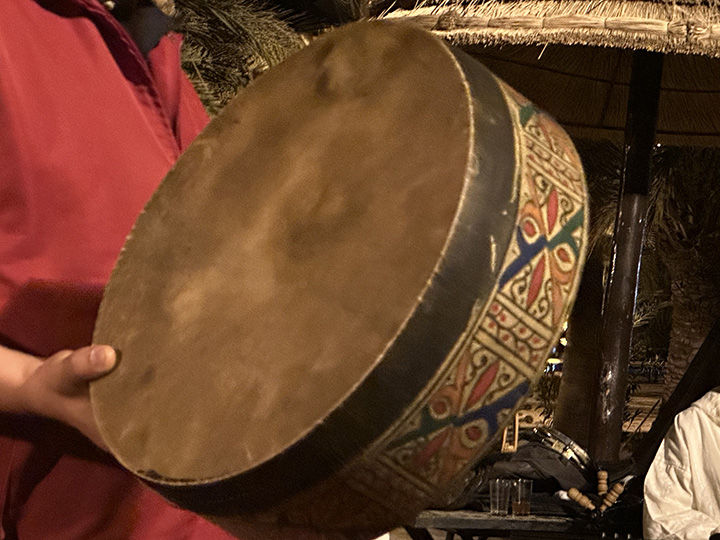|
We were on the road again today driving south for many miles. We left the rich farmland of Morocco behind us and found the desert.
Goodbye Fez.
Goodbye modern life.
Schools are easy to spot because they are so colorful.
Almond trees.
Mosque.
More mosque.
We are definitely leaving modern life behind.
Farms are smaller here and the ground is rockier.
People in the countryside are moving away from adobe construction.
As we travel into the Moroccan interior it doesn't take long for the farms to start growing rocks.
Lotsa rocks.
We are nearing the town of Ifrane.
We passed a special university where everything is taught in English. Apparently the French don’t like that because they still have colonial feelings toward Morocco and they want to keep French as the primary foreign language.
Al Akhawayn University in Ifrane is an independent, public, not-for-profit, coeducational, Moroccan university committed to educating future citizen-leaders of Morocco and the world through a globally oriented, English -language, liberal arts curriculum based on the American system.
And it has a fancy sign out front.
Ifrane is in the Mid-Atlas Mountains and it is a favorite vacation spot for people who live on the coast. It boasts is a ski resort and apparently several Persian Gulf rulers have a vacation homes here.
We walked around and since we will be riding camels through the Sahara dunes tomorrow, I decided it was time to buy a hat.
Ifrane’s landmark is the stone lion that sits on a patch of grass near the Hôtel Chamonix. It was carved by a German soldier during WWII, when Ifrane was used briefly as a prisoner-of-war camp, in exchange for the prisoner's freedom – or so the story goes – and commemorates the last wild Atlas lion, which was shot near here in the early 1920s. Having your picture taken with the lion is something of a ritual for Moroccan day trippers.
How does this day-tripper look in his new hat?
It's a pretty little town that will look even prettier when there are leaves on the trees.
Everywhere we went in Morocco we'd see law enforcement in groups of threes. There's the local police, the national police and the Moroccan army. Nabil said they do that to show cooperation among the organizations. I wondered if they're just keeping an eye on each other. I did learn the hard way (a curt warning in Rabat) that they don't like having their pictures taken, so I am just taking an innocent picture of Nabil.
I bought some nuts from a street vendor and found them delicious.
Some of the almonds were coated with rosemary and others with hot pepper. Yum.
This is a Moroccan high rent district.
That's an international airport over there. Apparently rich Arab sheiks maintain ski lodges in the mountains around here and this is how they access Ifrane.
The scenery continued beautiful as we drove further south and higher into the mountains.
It's a farmhouse. I suspect they raise sheep and goats. Or maybe they just grow rocks.
We haven't quite left the farmland behind.
This guy saw the bus stopping by the side of the road and he is coming over to try to make some money off the tourists. He ought to know we don’t care about fancy dressed horses. We are here for something entirely different.
We have stopped to feed the monkeys.
These are Barbary macaques who live in a forest near the town of Anzou. This one's a nice fellow, but he lost interest when I ran out of peanuts.
David has made a new friend.
Feed me, Seymour.
The Road Scholars are soft touches for friendly monkeys.
The monkeys were nice to the tourists but not so much with each other.
This is a Berber settlement we spotted from the bus.
The Berbers are an indigenous people of North Africa who have lived in the Atlas Mountains for centuries. The Berbers are descendants of the pre-Arab inhabitants of North Africa. They live in scattered communities across Morocco, Algeria, Tunisia, Libya, Egypt, Mali, Niger, and Mauritania.
The Berbers have a unique culture and language that sets them apart from the other peoples of the region.
Clearly they have been here for a while. Nabil said they are not gypsies and in fact they get along rather well with the local authorities. They are living on public lands which is tolerated. And they are willing to go along with almost anything the authorities want as long as it doesn’t cost anything. “We need you to register your marriages and get counted in the census.” “How much does it cost?” “It doesn’t cost anything.“ “OK, then.“ They were even willing to be vaccinated against Covid as long as it didn’t cost anything. Nabil has told us that he is of Berber heritage.
The land is starting to look even more barren.
We won't be seeing many more sheep for awhile.
The countryside will be looking more like this.
The groundcover is mainly rocks as we approach the high atlas mountains.
Here's a nice little town.
But some of it looks awfully sunbaked.
Everything looks sunbaked.
Look! Snow! The Berbers call the Atlas range idraren draren, which means "The Mountains of Mountains". The Atlas Mountains are renowned for their imposing size, especially at their pinnacle in the High Atlas. Morocco's seven highest peaks are all located in the High Atlas. Jebel Toubkal is the highest peak in the Atlas Mountains at 13,671 ft.
Now let’s stop for lunch in an area where people find meteorites. Is that a car up there?
This must be a hotel.
TripAdvisor says: Hotel Meteorites Boulaajoul features a garden, shared lounge, a terrace and restaurant in Zaida. Guests can have a drink at the bar. At the hotel, the rooms include a closet. With a private bathroom equipped with a shower and free toiletries, rooms at Hotel Meteorites Boulaajoul also offer free WiFi, while some rooms are equipped with a patio. At the accommodation each room is equipped with a desk and a flat-screen TV. A buffet breakfast is available daily at Hotel Meteorites Boulaajoul. The nearest airport is Fès–Saïs Airport, 91 miles from the hotel. What TripAdvisor doesn't say is that this place is out in the middle of NOWHERE.
They also find stromatolites. What’s
that you say?
Time for lunch.
Bill just loves it when the waiter surprises the table with what's hidden in the tagine. Note how dressed-up the waiter is.
This time it's meat. But what sort of meat? Some suggested goat. I am thinking lamb. It tasted fine, but it sure was boney.
We had vegetables, too.
Meteorites really is the official name of the hotel.
Here's all the info you'll need to make your reservation.
This is the site of an unusual road
rally held every year. If you were going to participate, you have to
drive one of those cars perched up on the pedestal.
The 4L Trophy is a yearly humanitarian rally across the Moroccan desert. Established in 1997 upon the initiative of Jean-Jacques Rey, it is organized by Desertours in a partnership with ESC Rennes School of Business.
The rally can only be joined by students with Renault 4 cars, which is what is up there. The rally's objective is to provide children with school supplies. Sounds weird, I know, but Nabil says great fun is had and Moroccan students benefit.
Its thousands of participants deliver about 80 tons of school furniture in Morocco after driving 6,000 km (3,728 mi) from departure sites in Bordeaux and Paris. 2017 marked the 20th anniversary of the 4L Trophy, counting 2,900 participants from 15 countries.
It's a sprawling complex out here in the desert, so I crossed the road in order to get it all in one picture.
Don took in the view from the roof.
Well I had to go up there too, didn't I?
There was a nice view.
Now we are headed up through a pass in the High Atlas Mountains.
From up here or there are some nice views of the plains below.
It is sort of pretty in an austere way.
The long and winding road under construction.
Look! Trees!
Bill keeps taking pictures because he has nothing better to do.
There's an almost-dry river down there.
But on the other side of the road there actually is a little water.
This potty stop has a fountain.
Well that's unusual. A fountain fashioned from mud. Lovely, just lovely.
Our bus awaits. Let's go.
That’s a mosque. I have noticed that minarets in Morocco never come in multiples. There is always just one, Nabil says, because there is only one God. That’s just how they do things here.
Somebody said there's an oasis around here.
Yep, it is an oasis, just like the ones we’ve all heard about.
In the middle of desolation.
Looks exactly like I expected.
The land is so dry.
Even the reservoir over there is going dry.
Those rocks used to be underwater.
Nabil pointed out the bathtub ring.
This is where we are. I think the map was drawn when there was more water.
That's a military barracks, a good indication that we are drawing close to Algeria. Morocco and Algeria aren’t getting along these days. Nabil says not to worry, that we are all quite safe with the Moroccan military protecting us.
Bill feels quite safe.
A fountain with water! They are living the good life here.
We have reached the town of Erfoud and this is our hotel for the night.
The Road Scholars are ready to rest.
This is the courtyard. The place is a lot bigger than it appeared from the highway.
The Road Scholar‘s are waiting for their keys.
Here’s a shot of my room taken while lying in bed. Nice, huh?
After dinner we were treated to a concert of Malhoun music by the Jorge Malhoun Band. They are not professional musicians. Their occupations range from farmer to civil servant. But they love to get together in the afternoons to practice and then perform for weddings and other official functions.
The Road Scholars are ready to be entertained.
The music they play is traditional music, nothing high class. The lyrics may focus on love and how lucky we are to be in love. Very simple. But the people love this music and this group is well-known throughout Morocco. Occasions like this are one of the prime reasons Road Scholar tours are worth the money.
Here, let them do a number for you.
It was clear our performers were having fun.
Nabil explained some of the instruments. Look at the neck on that Moroccan guitar. The neck is like a broomstick and there are no frets. I can't imagine trying to play it.
Little drums.
They were having a great time, and so were the Road Scholars.
Nabil showed us a big drum.
Both sides of it.
Nabil got into the swing of things.
And before you knew it, everybody was dancing -- and having a great time!
|

